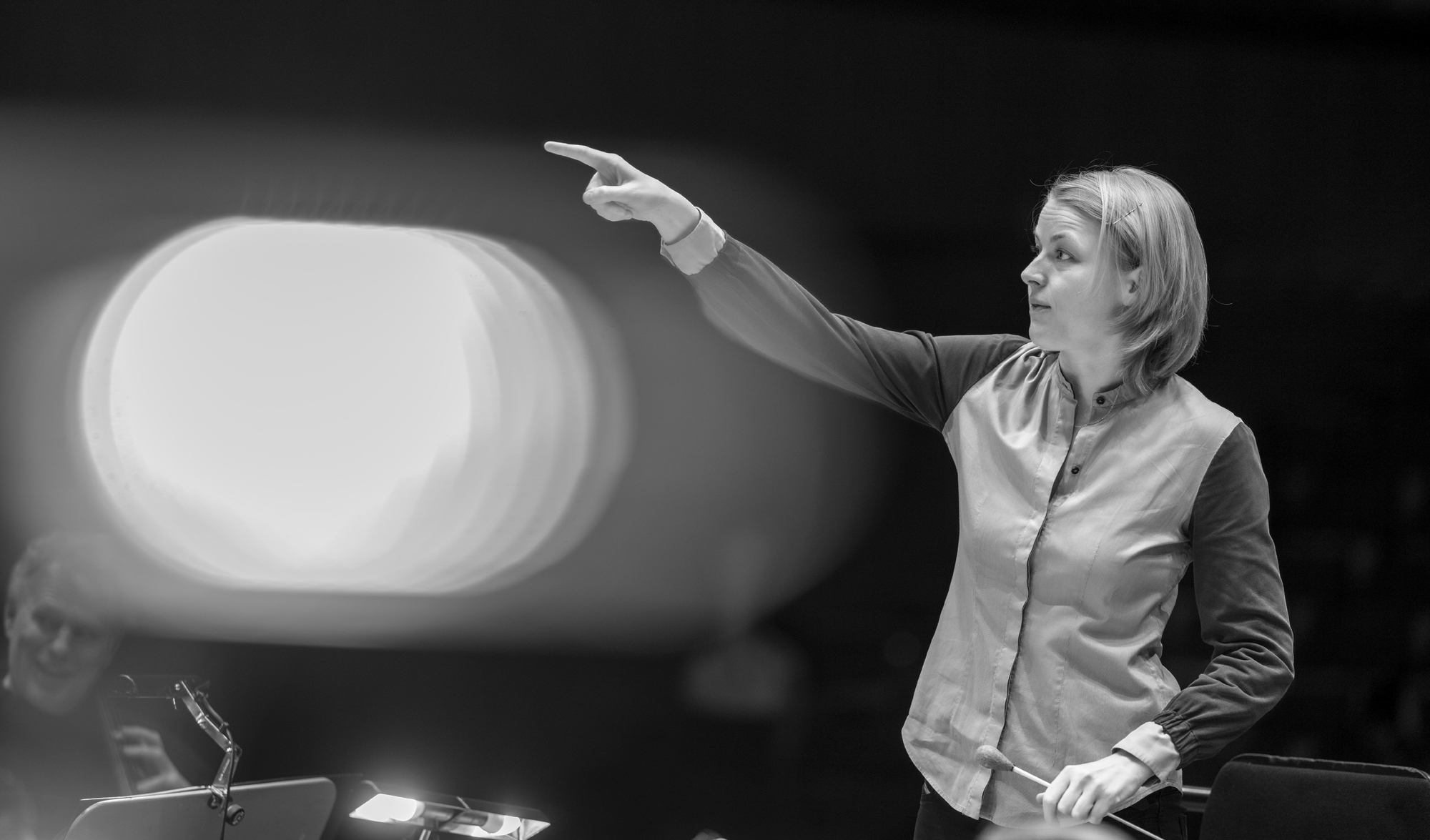
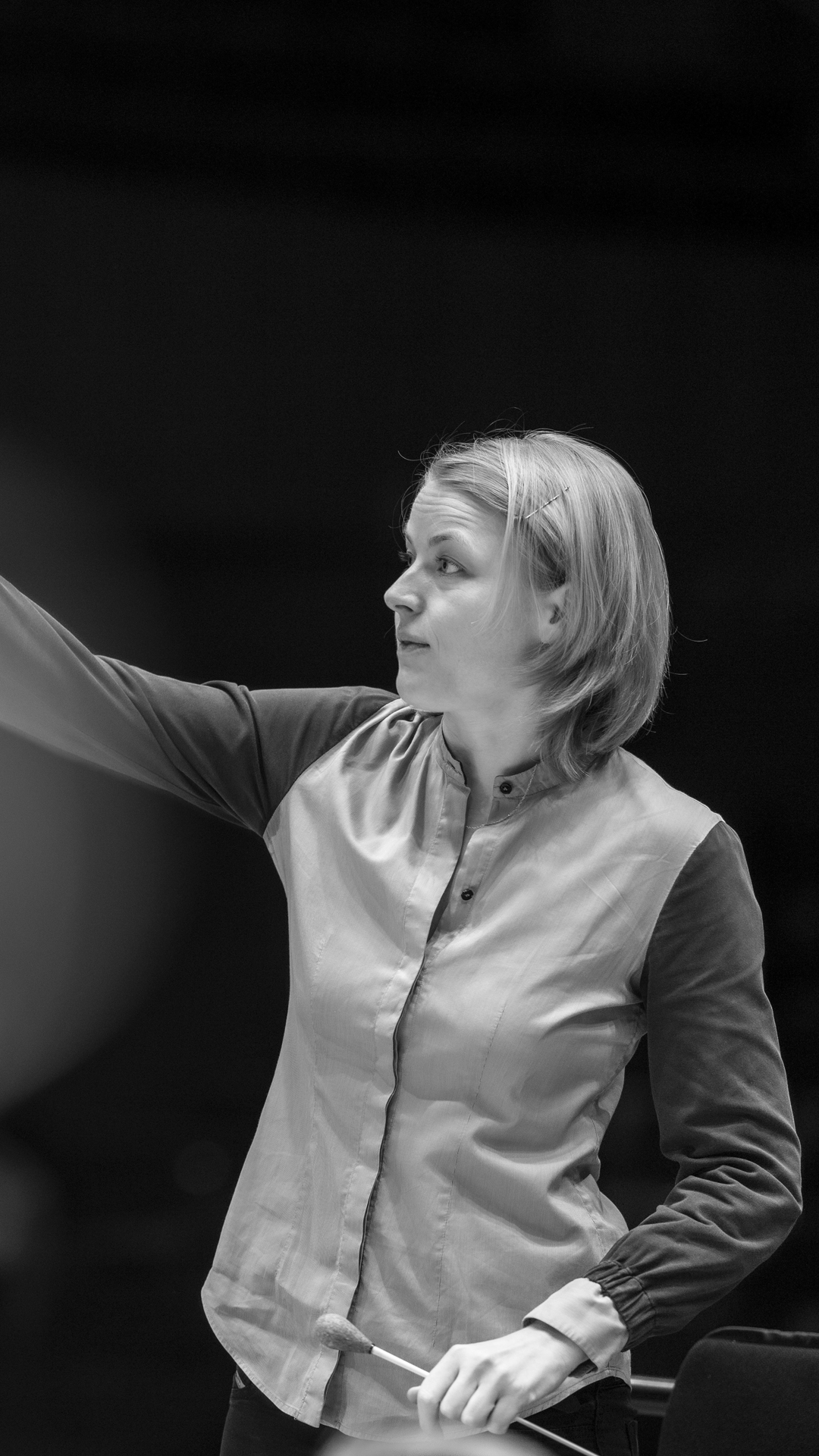
Digital programme booklet
Sa 25.11. MENSCH, MUSIK! #6.1.
Return to the Unknown – an exploration through text, dance, symphonic and electronic music
19:30 Haus des Rundfunks
Felix Mendelssohn Bartholdy
„Heimkehr aus der Fremde“ – Overture op. 89
Bohuslav Martinů
Toccata e Due Canzoni for chamber orchestra H 311
Ursula Mamlok
Concertino for woodwind quintet, percussion and string orchestra
3rd movement: Elegy
George Walker
Concerto for trombone and orchestra
1st movement: Allegro
Dai Fujikura
„Entwine“ for orchestra
Felix Mendelssohn Bartholdy
Excerpts from „Oder soll es Tod bedeuten“ – Eight songs and a fragment based on poems by Heinrich Heine
Richard Scott
Electronic sounds
The event takes place without intermission.
Cast
Ruth Reinhardt, conductor
Rundfunk-Sinfonieorchester Berlin
Victoria Randem, soprano
David Nebel, violin
Nadine Contini, violin
Alejandro Regueira Caumel, viola
Hans-Jakob Eschenburg, violoncello
Mohamed Gamal, trombone
Richard Scott, modular synthesizer
Gustavo Llano, choreography and dance
Inka Löwendorf, voice
tauchgold, text, concept and scenic design
Connor Oman & Joshua Mellard, Multimedia installation in the foyer
Catalyst – Institute for Creative Arts and Technology, cooperation partner
Mensch, Musik! #6.1 Return to the Unknown
Who am I, where do I come from, where do I belong?
Questions of origin, home and identity connect the evening's composers, who were expelled from their homeland (Bohuslav Martinů, Ursula Mamlok), no longer live in their country of origin (Dai Fujikura) or deal artistically with the enslavement of their ancestors (George Walker). Their symphonic and chamber music works meet electronic compositions by British composer Richard Scott at the Haus des Rundfunks.
The Berlin Radio Symphony Orchestra continues its "Mensch, Musik!" series with an interdisciplinary performance of song, dance, language, symphonic and electronic music under the direction of Ruth Reinhardt.

In the foyer of the Haus des Rundfunks, artists from Catalyst are exploring the topic of "home" in an installation entitled "Who do you think you are?".
Can the concept of home be explored from the perspective of microorganisms? "Who do you think you are?" is a multimedia installation that presents a post-human perspective on the concept of home.
By magnifying microbial activity, this installation shows the complex and rich life of organisms that humans often overlook.
This representation directly challenges the humanist doctrine that we are superior to these other organisms, allowing us to ask questions about human concepts from their perspective.
Applied to the concept of home, such questions might be: What is home for microbial life? What are borders? Do they experience homesickness or patriotism? And what is their relationship to our understanding of home?
"Who do you think you are?" was designed by Connor Oman & Joshua Mellard and produced with the help of Maria Vélez Gallo, Simón Guevara Wells & ShySam.
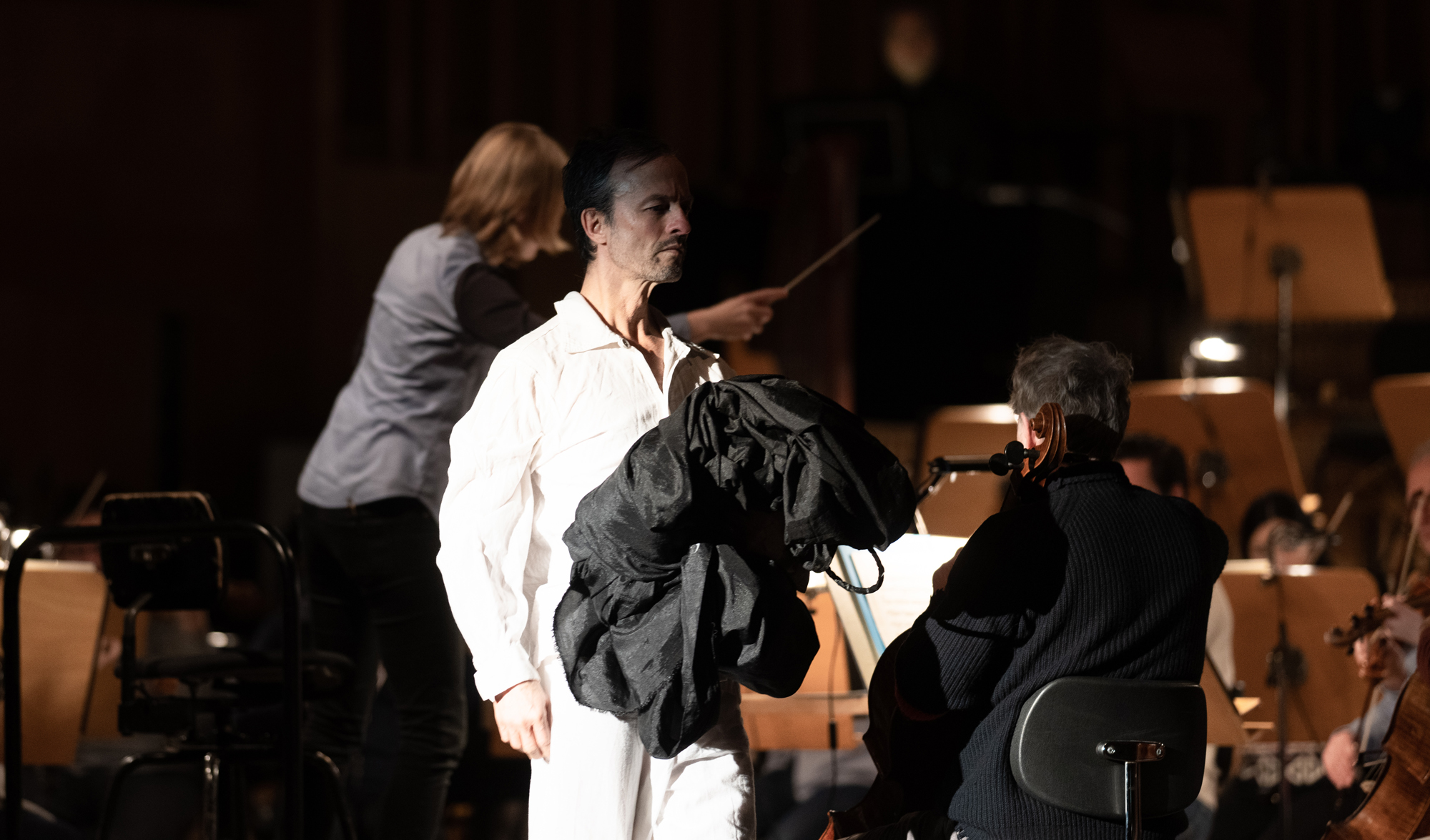
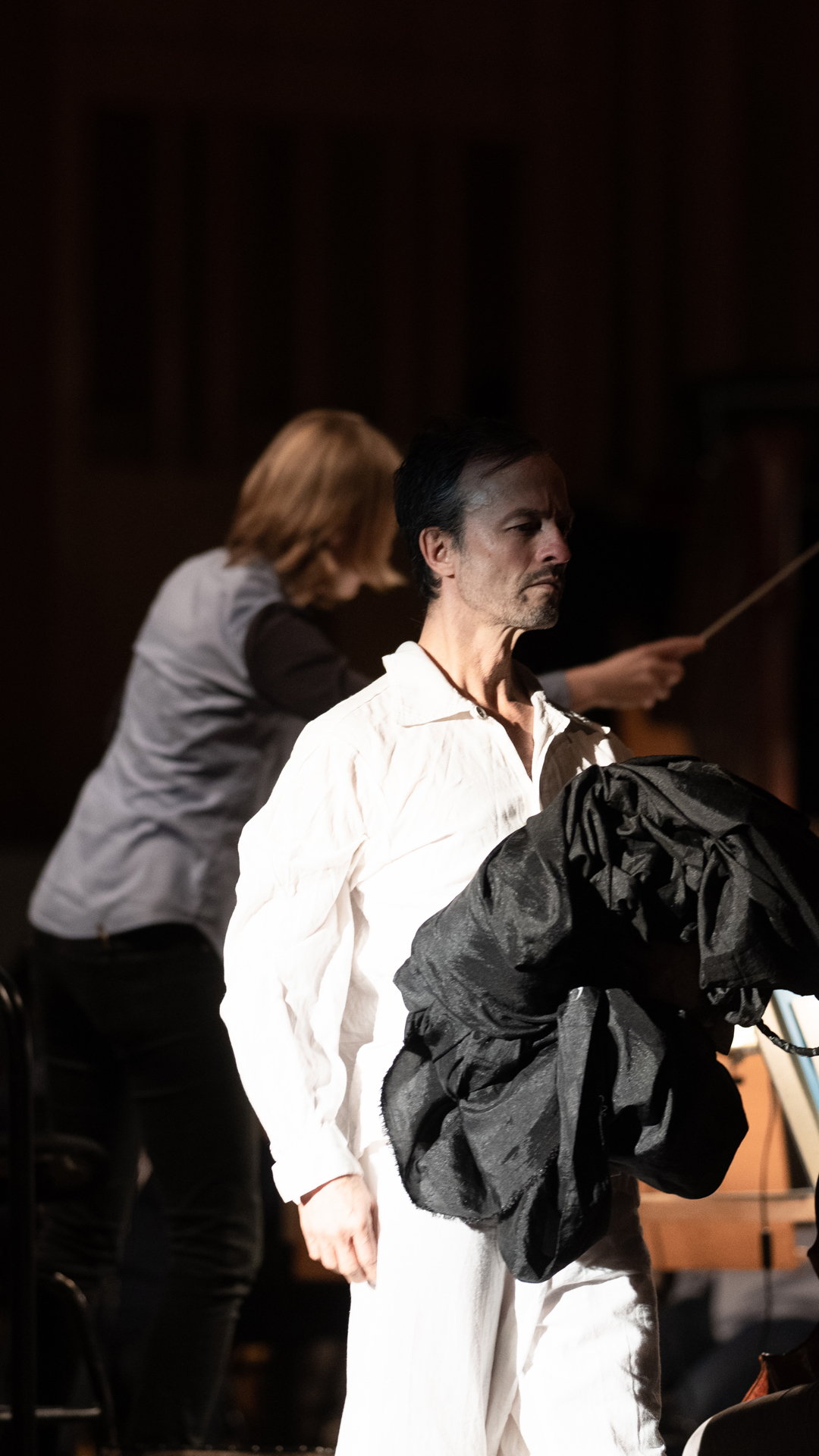
Programme
„El camino” (The path) –
„El instrumento es mi casa.“ (The instrument is my home.)
Dance
Felix Mendelssohn Bartholdy
(1809 – 1947)
„Heimkehr aus der Fremde“ – Ouvertüre op. 89
Andante – Allegro di molto – Andante come I.
Richard Scott
Electroacoustic interlude
Ursula Mamlok
(1923 – 2016)
Concertino for woodwind quintet, percussion and string orchestra
3rd movement: Elegy
Richard Scott
Electroacoustic interlude
„El viento mueve mi cuerpo.“ (The wind shakes my body.)
Dance
Felix Mendelssohn Bartholdy / Aribert Reimann (geb. 1936)
„... oder soll es Tod bedeuten? Eight songs and a fragment by Felix Mendelssohn Bartholdy on poems by Heinrich Heine, arranged for soprano and string quartet and combined with six intermezzi by Aribert Reimann"
„Leise zieht durch mein Gemüt“ (Quietly moves through my mind)
Intermezzo I
„Der Herbstwind rüttelt die Bäume“ (The autumn wind shakes the trees)
Richard Scott
Electroacoustic interlude
George Walker
(1922 – 2018)
Concerto for trombone and orchestra
1st movement: Allegro
tauchgold
„Return to the Unknown" Part 1
Poem
„La Luz es mi camino.“ (The light is my path.)
Dance
Felix Mendelssohn Bartholdy / Aribert Reimann
(On the wings of song) and Intermezzo IV
Bohuslav Martinů
(1890 – 1959)
Toccata e Due Canzoni für Kammerorchester H 311
Toccata. Allegro moderato
Richard Scott
Electroacoustic interlude
„De regresso a la tierra“ (Back to the earth)
Dance
Bohuslav Martinů
Toccata e Due Canzoni
Canzona I. Andante moderato
tauchgold
"Return to the Unknown" Part 2
Poem
Richard Scott
Electroacoustic interlude
Dai Fujikura
(geb. 1977)
„Entwine“ for Orchestra
„Silencio anda en mi.“ (The silence wanders in me.)
Dance
Felix Mendelssohn Bartholdy / Aribert Reimann
Intermezzo VI and „Warum sind denn die Rosen so blass?“ (Why are the roses so pale?)
Bohuslav Martinů
Toccata e Due Canzoni
Canzona II. Allegro (poco)
„De regreso en tierra extranjera“ (Back to the foreign land)
Dance
Background
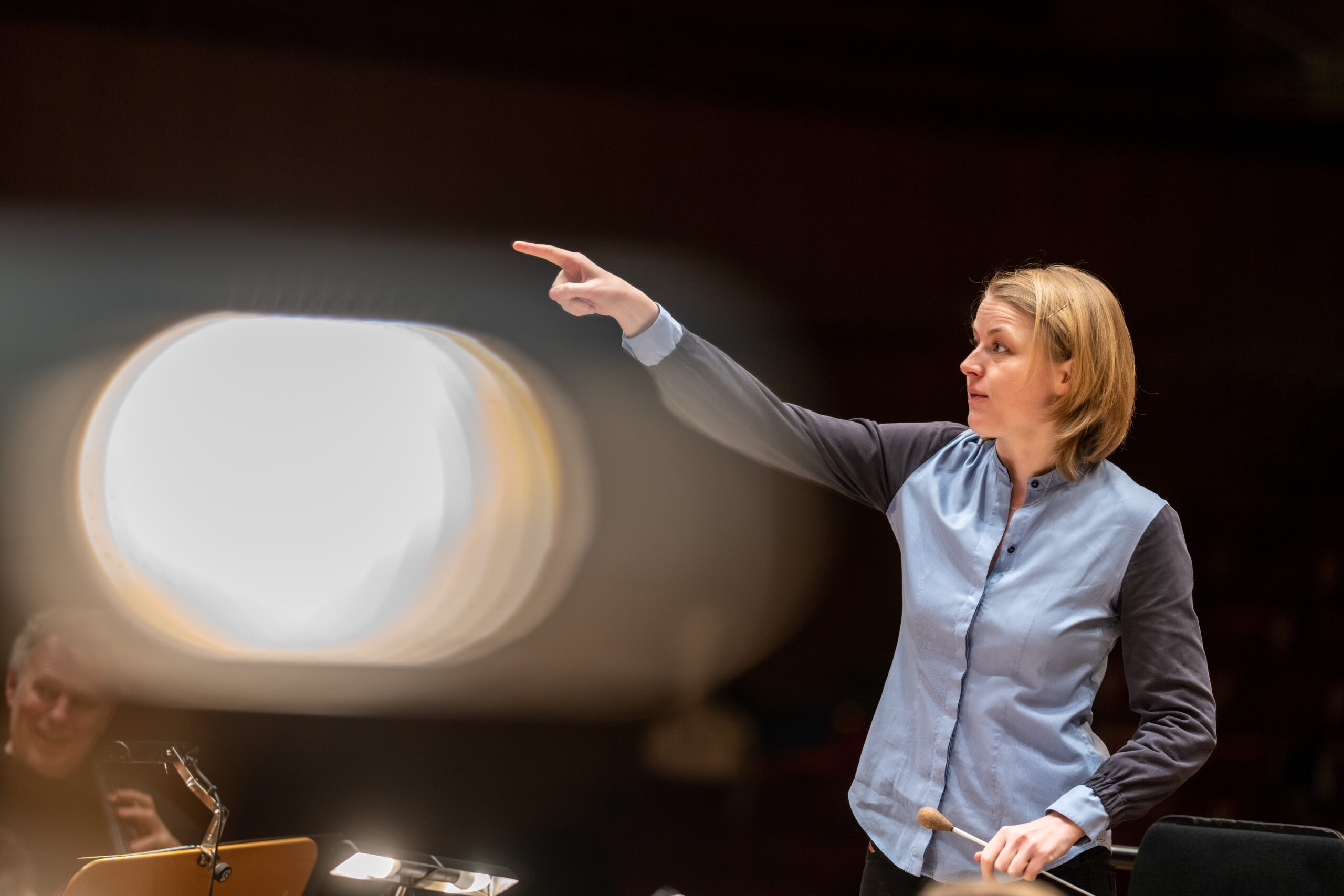
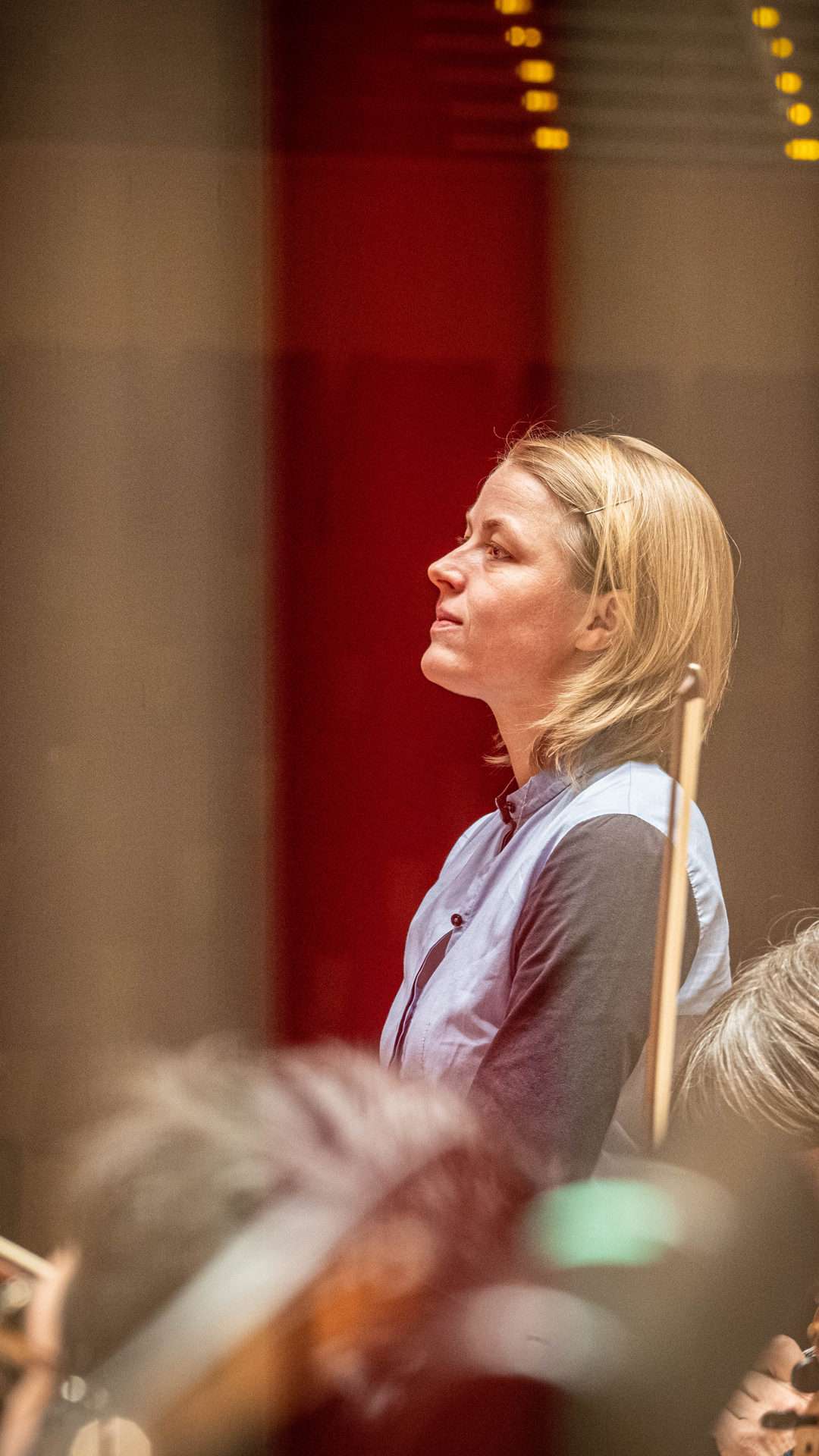
Return to the Unknown
Berlin 1743
Ha-katan Mausche mi-Dessau - little Moses from Dessau - enters the city through the Halle Gate. There is nothing to suggest that the shy, short Talmud student will one day become the famous Enlightenment philosopher Moses Mendelssohn. His "homecoming to the foreign" of Berlin marks the beginning of a development for Germany, indeed for Europe, which is still ongoing today - on the one hand in terms of the emancipation of so-called minorities, and by no means just Jewish ones. On the other hand, as a claim by individuals to themselves to no longer allow their own lives and thoughts to be determined by religious or social prejudices.
Berlin 1829
Felix Mendelssohn Bartholdy, a convert to Protestantism and a grandson of Moses, performs the singspiel "Heimkehr aus der Fremde". A cheerful, light piece, composed without too many ulterior motives for his parents' silver wedding anniversary. Nevertheless, the title seems like a metaphor for the optimism of the time: Germany is opening up. Never before had the path to the center of society seemed so free. People can and want to leave their foreignness behind!
Berlin 1933
The siblings Francesco and Eleonora von Mendelssohn, both successful artists and direct descendants of Moses Mendelssohn, leave Germany for good. Although they were no longer Jewish, even in the third generation, their homeland had become a foreign country to them, especially spiritually: philosophical enlightenment and social openness, for which their ancestor Moses Mendelssohn had so successfully campaigned, have failed in an incomprehensible way.
Could such a reversal of liberal development happen again today, almost a hundred years later?
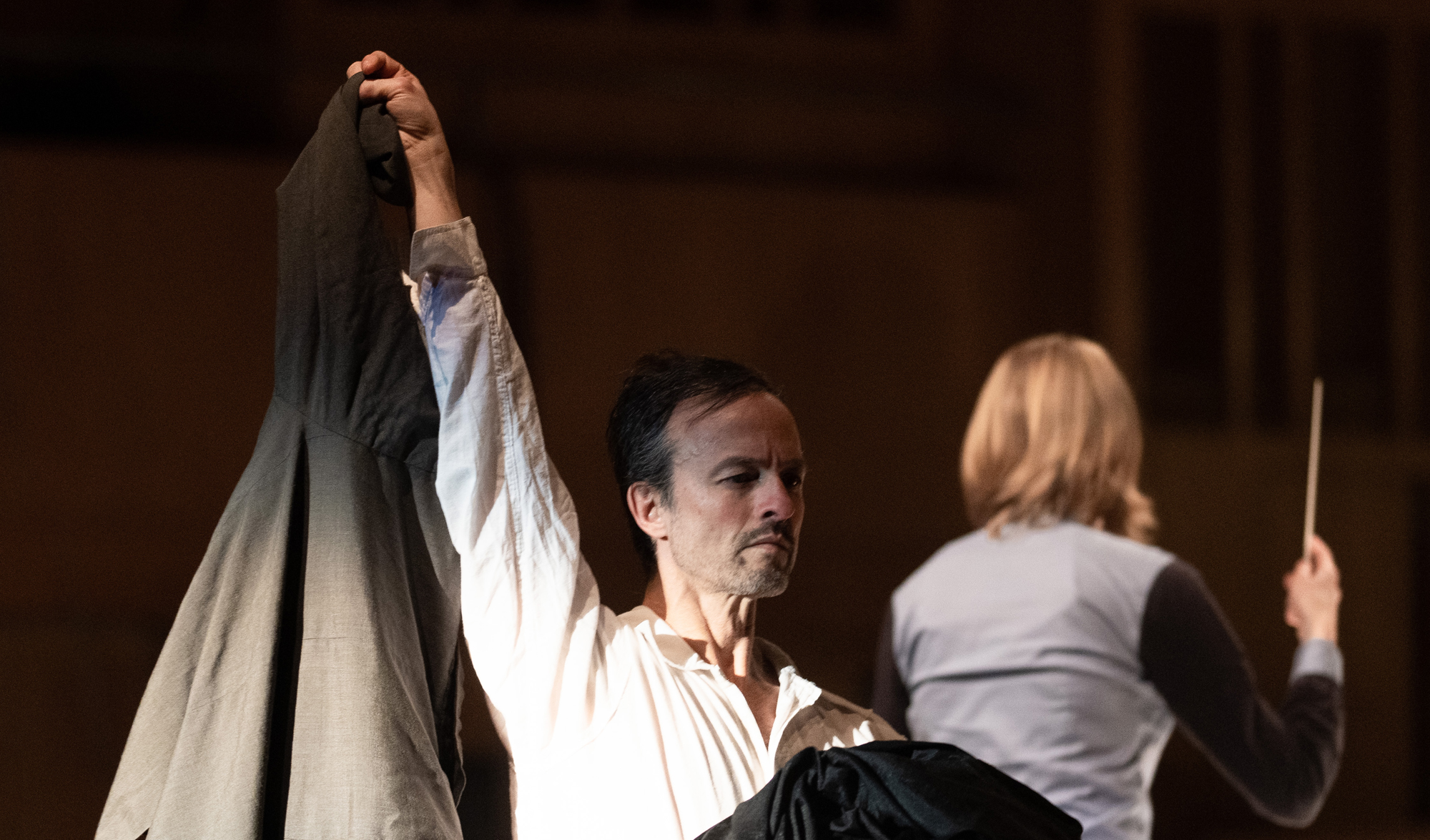
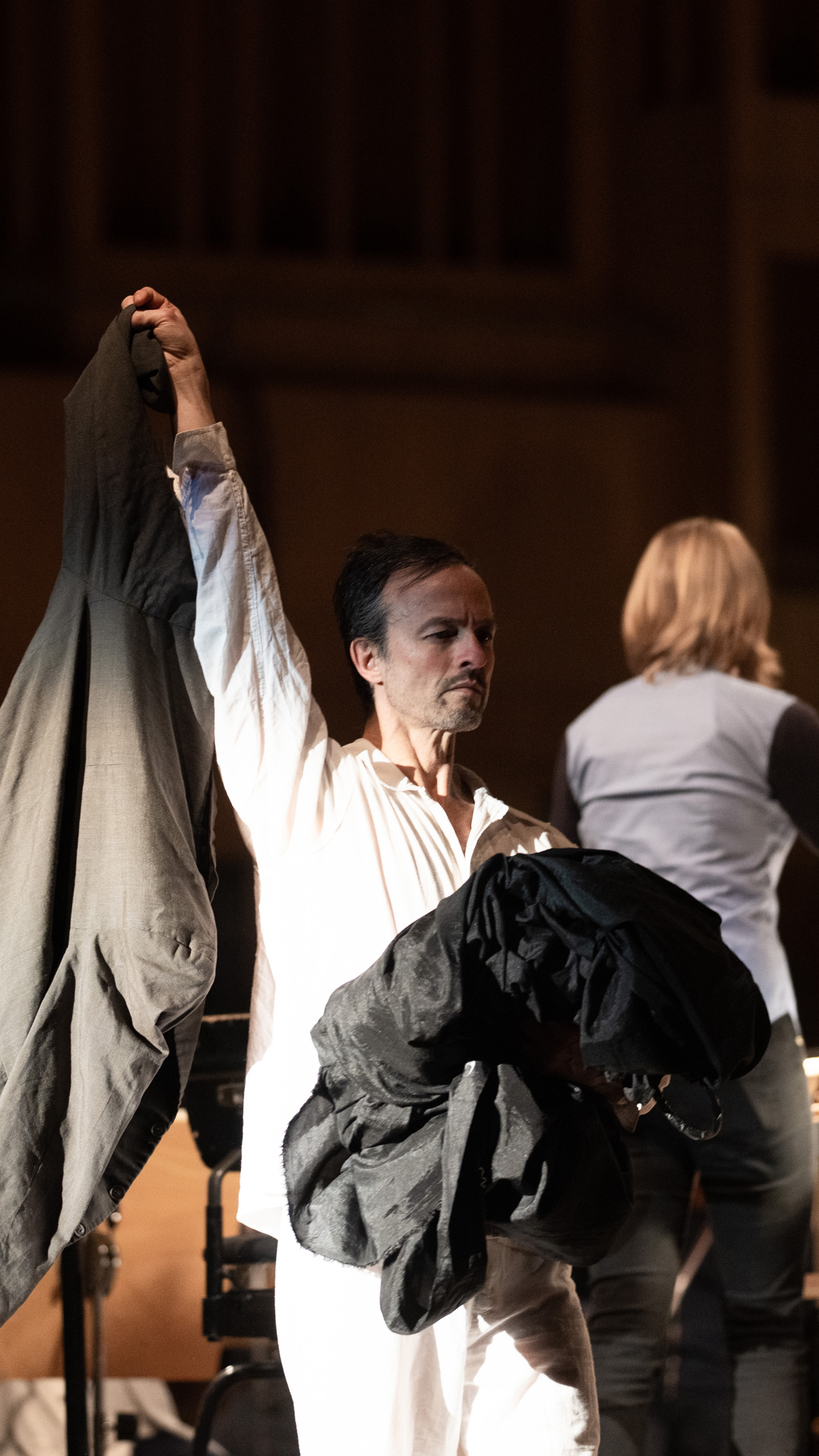
Following traces
The evening is inspired by Felix Mendelssohn Bartholdy with his overture to the singspiel "Heimkehr aus die Fremde". It is also Mendelssohn Bartholdy who sets a counterpoint with his songs on poems by Heinrich Heine. With arrangements for voice and string quartet and, in particular, with disturbing commentaries for the string quartet, Aribert Reimann has added preludes and postludes to the songs.
A Jewish composer, who emigrated in time to escape the Nazis, experienced a painful return to Europe. Ursula Mamlok's "Elegy" (1987) testifies to this in reproachless silence. It was not until 2006 that she returned to Berlin after almost 70 years in the USA.
When the Czech refugee Bohuslav Martinů began work on the orchestral work "Toccata e Due canzoni" in Massachusetts in 1946, he was thinking of a light, optimistic piece. The war is over. A new era begins. But for Martinů, health problems turn the recovery of his own creative power, his own ability to express himself, into a special form of " coming home to the foreign". Moreover, he is denied the much desired return to his home country. The returnee is not wanted simply because he is not prepared to bow to the new political rulers.
In 1957, the American composer George Walker - with almost the same lifespan as Ursula Mamlok - composed music as a late descendant of enslaved Africans that transformed the loss of their genuine origins and the tiring struggle for equal rights into a new, self-confident sound. His "Concerto for Trombone and Orchestra", inspired by Western classical music and jazz, is considered one of the first to focus on the expressive possibilities of the modern trombone in the second half of the 20th century.
The search for traces of his origins and homeland is yet another matter for composer Dai Fujikura, who was born in Japan and has lived in the UK since the age of 15. Neither here nor there does he feel truly at home or truly foreign. And yet everything intertwines. His orchestral work "Entwine" (2021), written under the influence of the social hardships of the pandemic, passes the musical material from one instrument to another - as if from one hand to another.
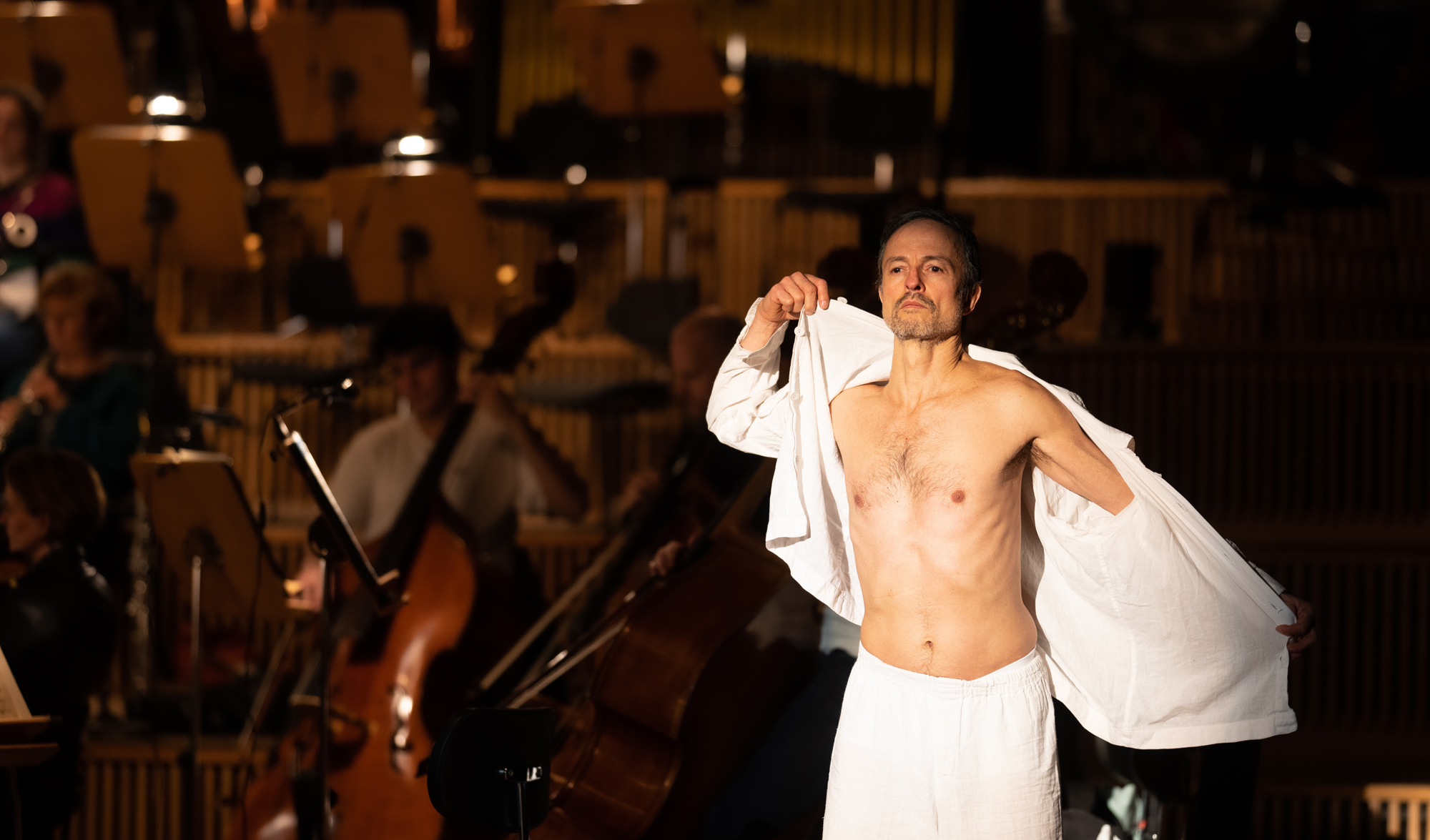

Born in Colombia, dancer Gustavo Llano left his home country in the late 1990s due to the ongoing violence there. "Heimkehr in die Fremde" is the connection between the musical works and his life story, a search for traces of his former self.
The work of the British composer and electro-acoustic musician Richard Scott has always moved along the edges of various musical genres, from jazz and free improvisation to new music. The interaction with a large symphonic orchestra as well as with chamber ensemble, dance and voice therefore follows his artistic intent of bringing about unexpected encounters between different musical worlds and artistic disciplines.
© tauchgold and Steffen Georgi
Lyrics sung
Heinrich Heine (1797 - 1856)
1
Leise zieht durch mein Gemüt
Liebliches Geläute;
Klinge, kleines Frühlingslied,
Kling hinaus ins Weite.
Kling hinaus bin an das Haus,
Wo die Veilchen sprießen.
Wenn du eine Rose schaust,
Sag, ich lass sie grüßen.
2
Der Herbstwind rüttelt die Bäume,
Die Nacht ist feucht und kalt;
Gehüllt im grauen Mantel
Reite ich einsam, einsam im Wald.
Und wie ich reite, so reiten
Mir die Gedanken voraus;
Sie tragen mich leicht und luftig
Nach meiner Liebsten Haus.
Die Hunde bellen, die Diener
Erscheinen mit Kerzengeflirr;
Die Wendeltreppe stürm‘ ich
Hinauf mit Sporengeklirr.
Im leuchtenden Teppich gemache,
Da ist es so duftig und warm,
Da harret meiner die Holde,
Ich fliege in ihren Arm!
Es säuselt der Wind in den Blättern,
Es spricht der Eichenbaum:
„Was willst Du, törichter Reiter,
Mit Deinem törichten Traum?“
4
Auf Flügeln des Gesanges,
Herzliebchen, trag ich dich fort,
Fort nach den Fluten des Ganges,
Dort weiß ich den schönsten Ort;
Dort liegt ein rotblühender Garten
Im stillen Mondenschein,
Die Lotosblumen erwarten
Ihr trautes Schwesterlein.
Die Veilchen kichern und kosen,
Und schaun nach den Sternen empor,
Heimlich erzählen die Rosen
Sich duftende Märchen ins Ohr.
Es hüpfen herbei und lauschen
Die frommen, klugen Gazell‘n,
Und in der Ferne rauschen
Des heil‘gen Stromes Well‘n.
Dort wollen wir niedersinken
Unter dem Palmenbaum,
Und Liebe und Ruhe trinken,
Und träumen seligen Traum.
8
Warum sind denn die Rosen so blass?
O sprich, mein Lieb, warum?
Warum sind denn im grünen Gras
die blauen Veilchen so stumm?
Warum singt denn mit so kläglichem Laut,
die Lerche in der Luft?
Warum steigt denn aus dem Balsamkraut
Hervor ein Leichen…?
Short biographies
Ruth Reinhardt

Born in Saarbrücken, Ruth Reinhardt already composed and conducted a children's opera in her home town at the age of 17. She studied Conducting in Zurich under Constantin Trinks and Johannes Schlaefli. She also took part in master classes with Bernard Haitink, Michael Tilson Thomas, David Zinman and James Ross, among others. After completing her master's degree in Conducting at New York's Juilliard School with Alan Gilbert, Ruth Reinhardt received conducting scholarships for orchestral work in Boston/Tanglewood and Seattle. From 2015 to 2017 she was Associate Conducting Fellow of the "Taki Concordia" program, then Dudamel Fellow of the Los Angeles Philharmonic. In 2018 and 2019, she assisted at the Lucern Festival Academy Orchestra and the Dallas Symphony Orchestra.
Highlights of recent seasons include debuts with the symphony orchestras of Cleveland, San Francisco, Dallas, Detroit, Houston, Orlando, Milwaukee and Portland, at the summer festivals at the Blossom Music Center and at Wolf Trap in Virginia. In Europe, she has made her debuts with the HR Symphony Orchestra in Frankfurt, the Vienna Tonkünstler Orchestra in Graz, Gävle and Kristiansand, as well as with the Stockholm Philharmonic Orchestra in Berlin, Leipzig and Paris. She conducted the RSB for the first time in February 2023.
tauchgold
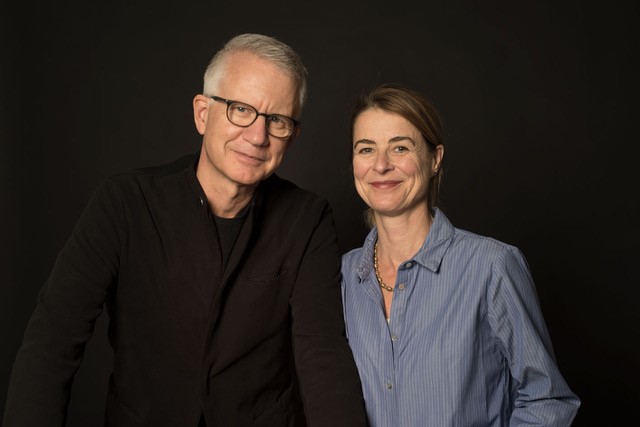
tauchgold (Heike Tauch and Florian Goldberg) have been producing plays at the interface between radio and stage since 2007. Their works include social satires, historical dramas and philosophical materials. However, specially composed music always plays a central role. In 2019, their stage work "Das Gläserne Meer - Ein Narratorium für Streicher und Stimmen" premiered in Munich, a composition by Cathy Milliken based on the radio play "Metamorphosen". The composer Dai Fujikura wrote the music for "Geborgte Landschaft - Ein Narratorium für Klaviertrio und Stimmen" (2022). In June 2022, tauchgold already realized the RSB's "Mensch, Musik!" #4 project named "Wanderungen". The two "Mensch, Musik!" projects that followed in February and April 2023 ("Heimkehr in die Fremde" and "Statt Land Meer") were also created in collaboration with tauchgold.
Victoria Randem
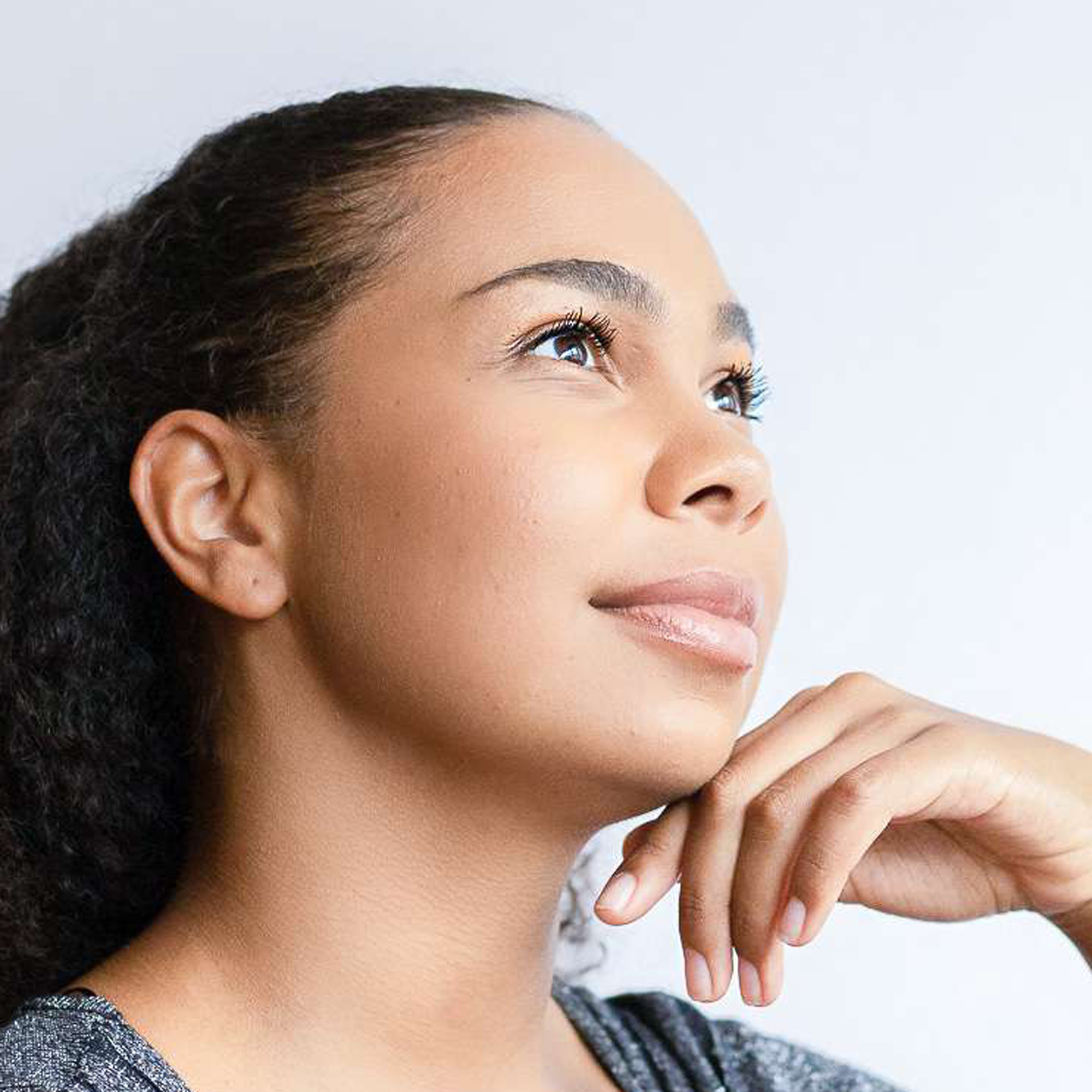
The Norwegian-Nicaraguan soprano Victoria Randem, described as having "meltingly beautiful top notes" (Financial Times), has emerged as a versatile young operatic talent, performing in repertoire ranging from Mozart to contemporary works.
In concert, Victoria Randem has appeared with the Stuttgart Philharmonic Orchestra under Dan Ettinger and alongside Thomas Hampson as part of Opera for Peace, she returned to the Oslo Oratoriekor for the Brahms Requiem and will appear in a solo recital at the Staatsoper Berlin with Mathias Samuil.
Randem's professional career began in her hometown of Oslo, where she made her debut at the Norwegian National Opera as Barbarina in „Le nozze di Figaro“ and returned as Gretel in „Hansel and Gretel“, in addition to appearances with the Norwegian Radio Orchestra (KORK) and a gala concert "Ønskekonserten", which was broadcast by Norwegian public broadcaster NRK.
Mohamed Gamal
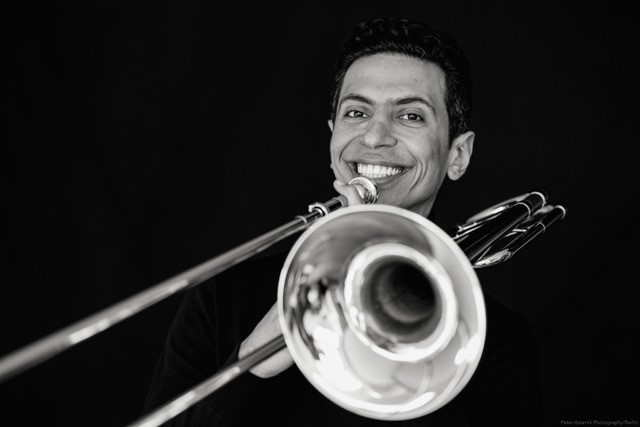
Mohamed Gamal is an Egyptian trombonist. He is a graduate of the Cairo Conservatory and the Barenboim-Said Academy in Berlin. He joined the Cairo Symphony Orchestra as assistant principal trombonist at the age of 17. In 2010, he won first place at the 9th International Summer Festival in Egypt. He has toured extensively throughout the Middle East, South America, Europe, Africa and Asia. From 2011 to 2015, he played several solo concerts with the Cairo Symphony Orchestra. In 2013, he was honored to become a member of the West-Eastern Divan Orchestra under the direction of Daniel Barenboim, and since then he has performed with the West-Eastern Divan Orchestra all over the world. Since 2015 he has been a member of the Barenboim-Said Academy in Berlin, where he studied under Stefan Schulz and Filipe Alves.
Gustavo Llano
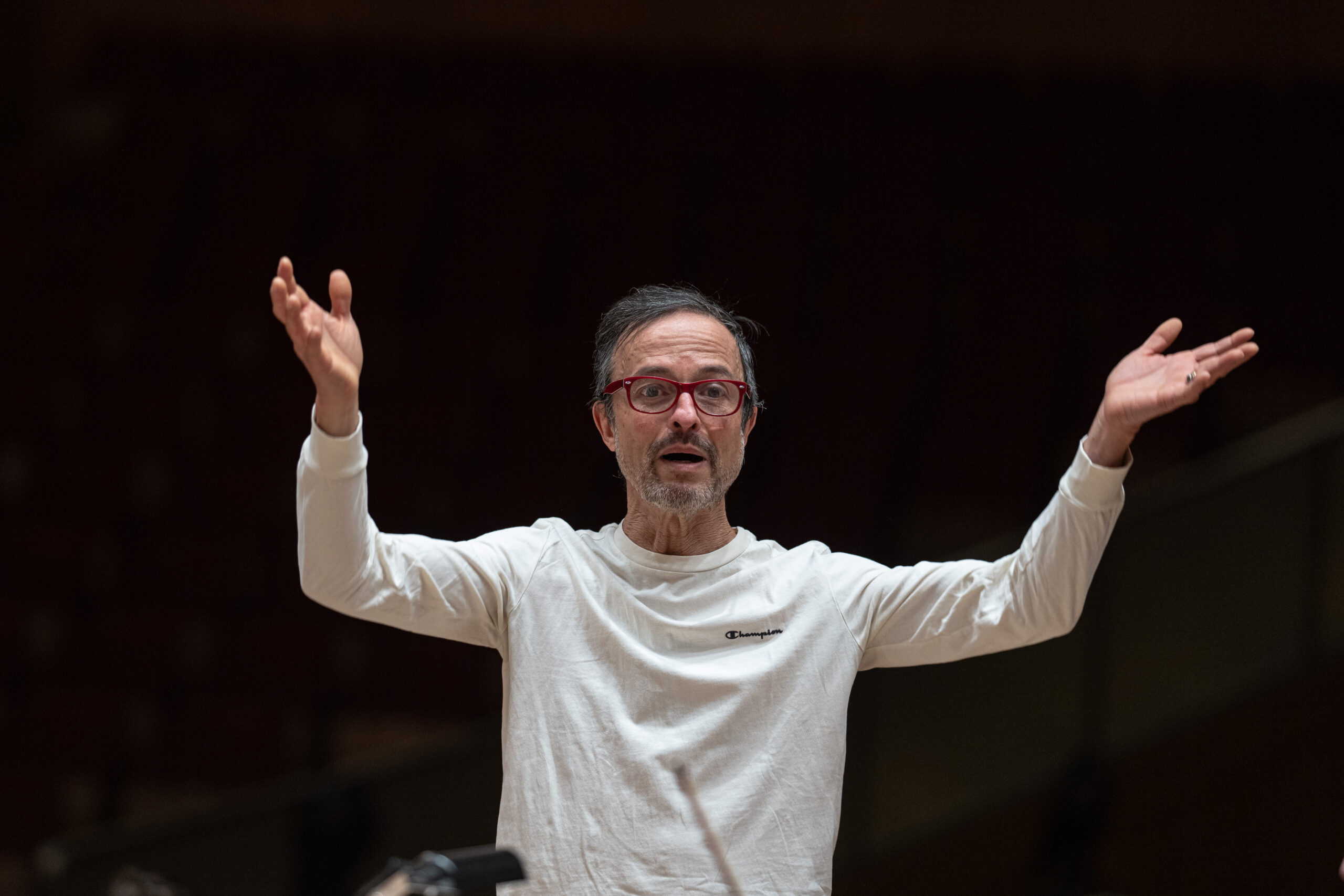
Gustavo Llano was born in Medellín, Colombia. He studied theater at the Escuela Popular de Arte de Medellín (now ITM) and fine arts at the University of Antioquia before dedicating himself exclusively to dance. His dance teachers included Jorge Holguín, Álvaro Restrepo, Beatriz Gutiérrez, Peter Palacio and Silvia Rolz.
Since 1998, Gustavo Llano has been living in Berlin in self-exile, as he puts it. Like many other dancers of his generation, he left the country because of the violence. The final straw was the murder of his friend and teacher José Manuel Freidel, a visionary of socially critical Colombian theater.
In Germany, Gustavo Llano initially danced in Ismael Ivo's company. It was through him that he met Johann Kresnik, with whom he worked for several years, first as a dancer and later as an artistic assistant. Together with Kresnik, he staged "Plan Vía", a choreographic reflection on Colombia's present, in Bogotá and "Die Fledermaus" for the Wuppertal Opera. His own choreographic works include Tchaikovsky's " Pique Dame" for the Los Angeles Opera as well as numerous pieces that he has staged in Europe, the US and Latin America. Gustavo Llano's work is based on the idea of choreographic theater, which differs from dance theater in its political motifs and socially critical content and seeks the greatest possible expression with the simplest, most everyday means.
Richard Scott
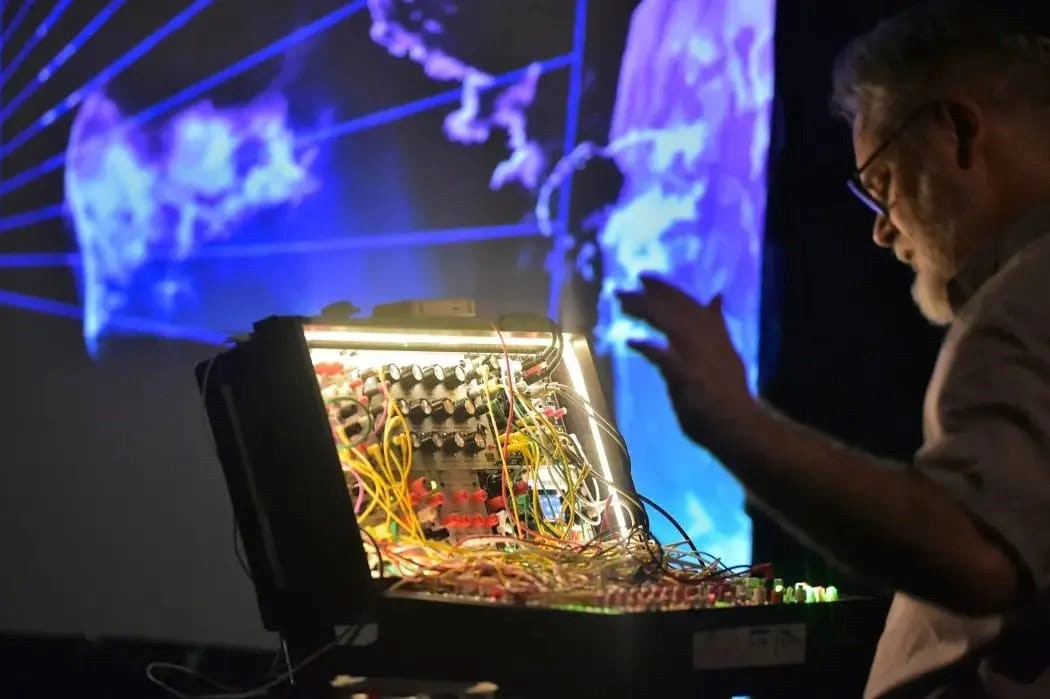
Richard Scottis a Berlin-based British composer and improviser who has been working in the margins of free improvisation, jazz and avant-garde composition for around four decades. In recent years he has concentrated on developing a personal and highly intuitive approach to the compositional and improvisational possibilities of modular synthesis.
Richard Scott's musical journey began in the early 1980s with a Korg MS20 synthesizer while playing in post-punk bands in Lincolnshire. His instrument of choice during this time in London and Manchester was the saxophone, which he studied under Elton Dean and Steve Lacy. Working with the drum and bass ensemble Spellbound and realizing that his saxophone was not loud enough for nightclub sound systems, he returned to electronics, culminating in the development of his own MIDI instrument, the WiGI.
Richard Scott has two PhDs: the first for his dissertation on improvised music at the University of London (1992), the second for a portfolio of electroacoustic compositions at the University of Manchester (2020). He is the author of several articles on free improvisation, modular synthesis and post-acousmatic music. He currently directs the Creative Production Master's program at the Catalyst Institute for Creative Arts and Technology in Berlin.
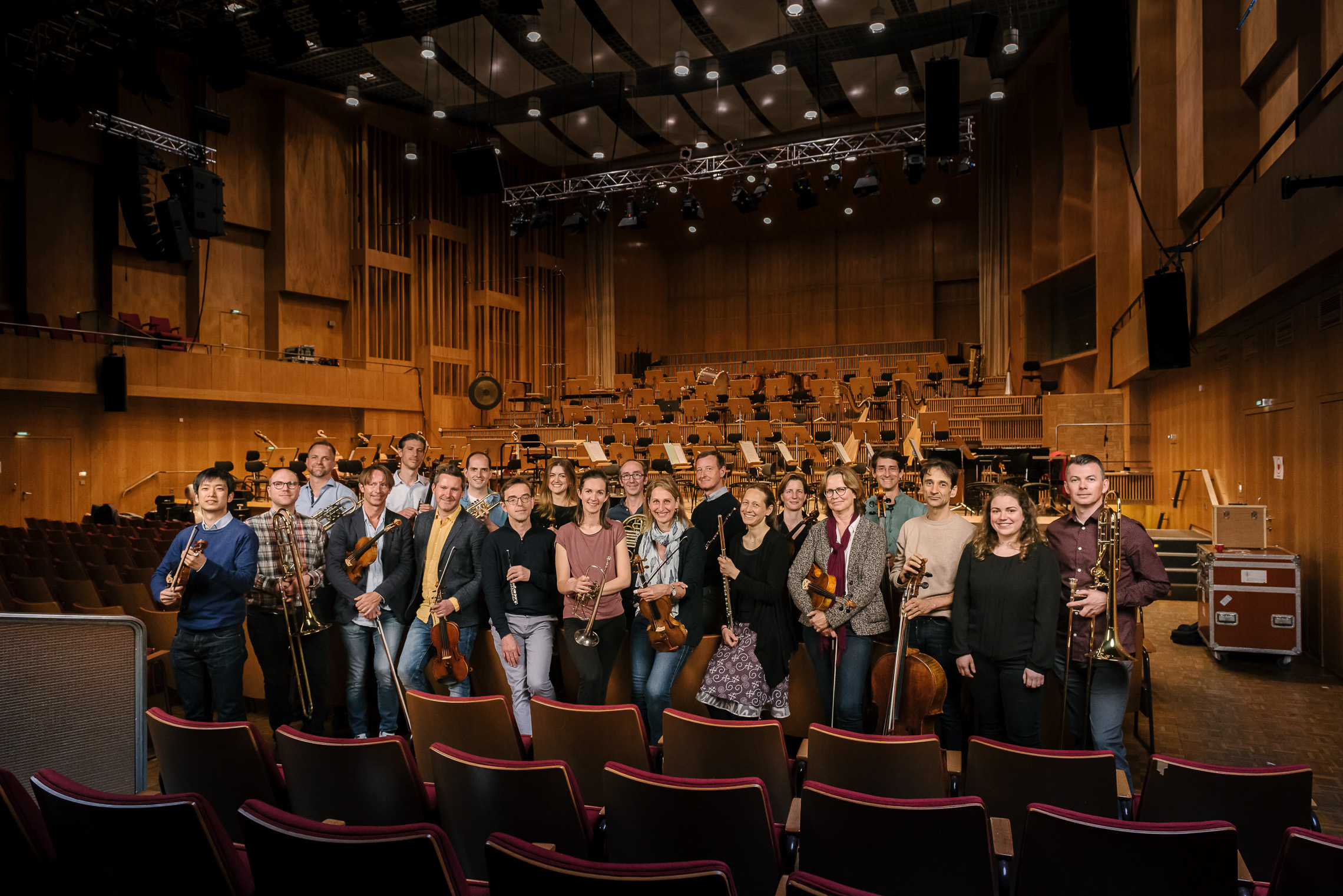
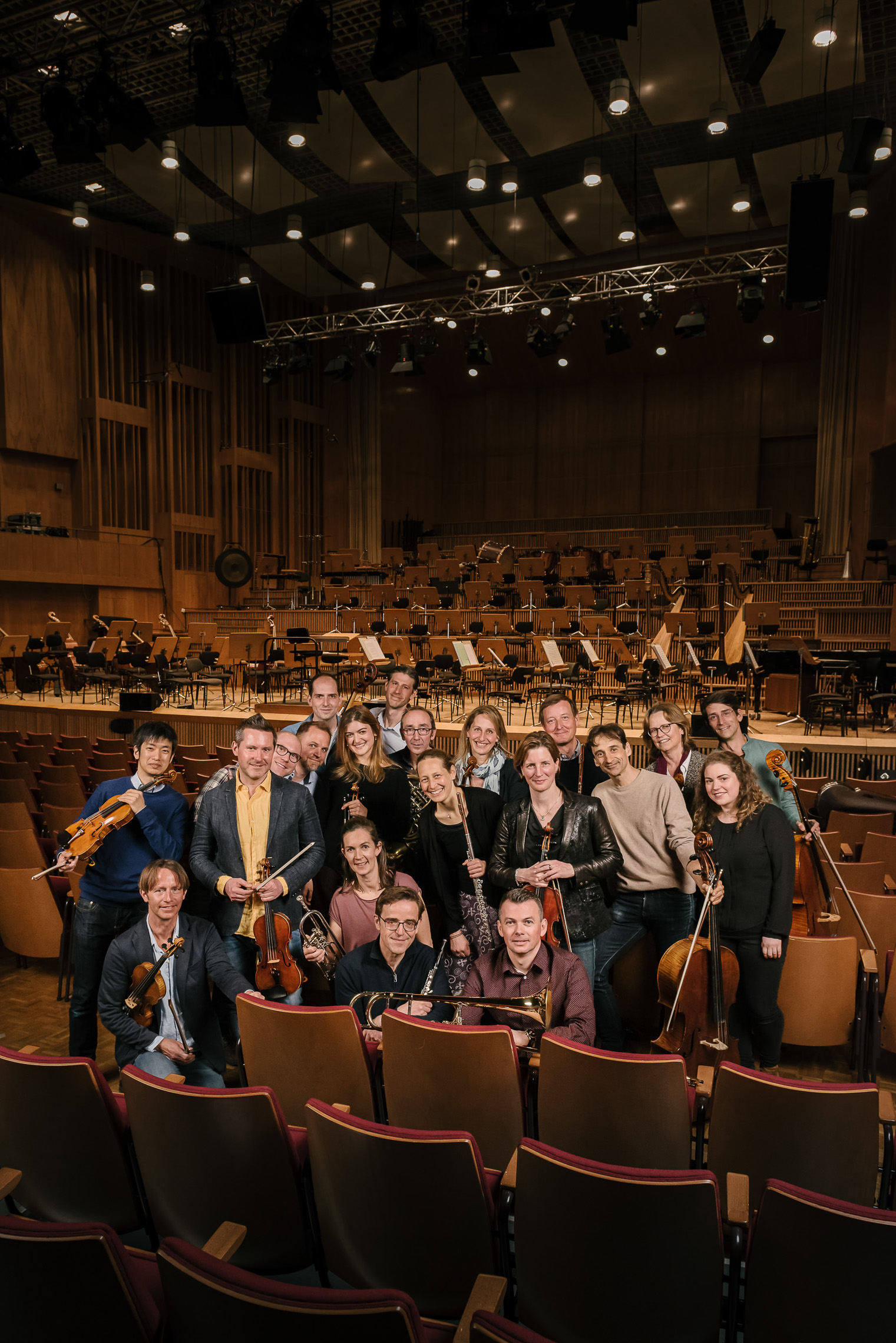
Evening cast RSB
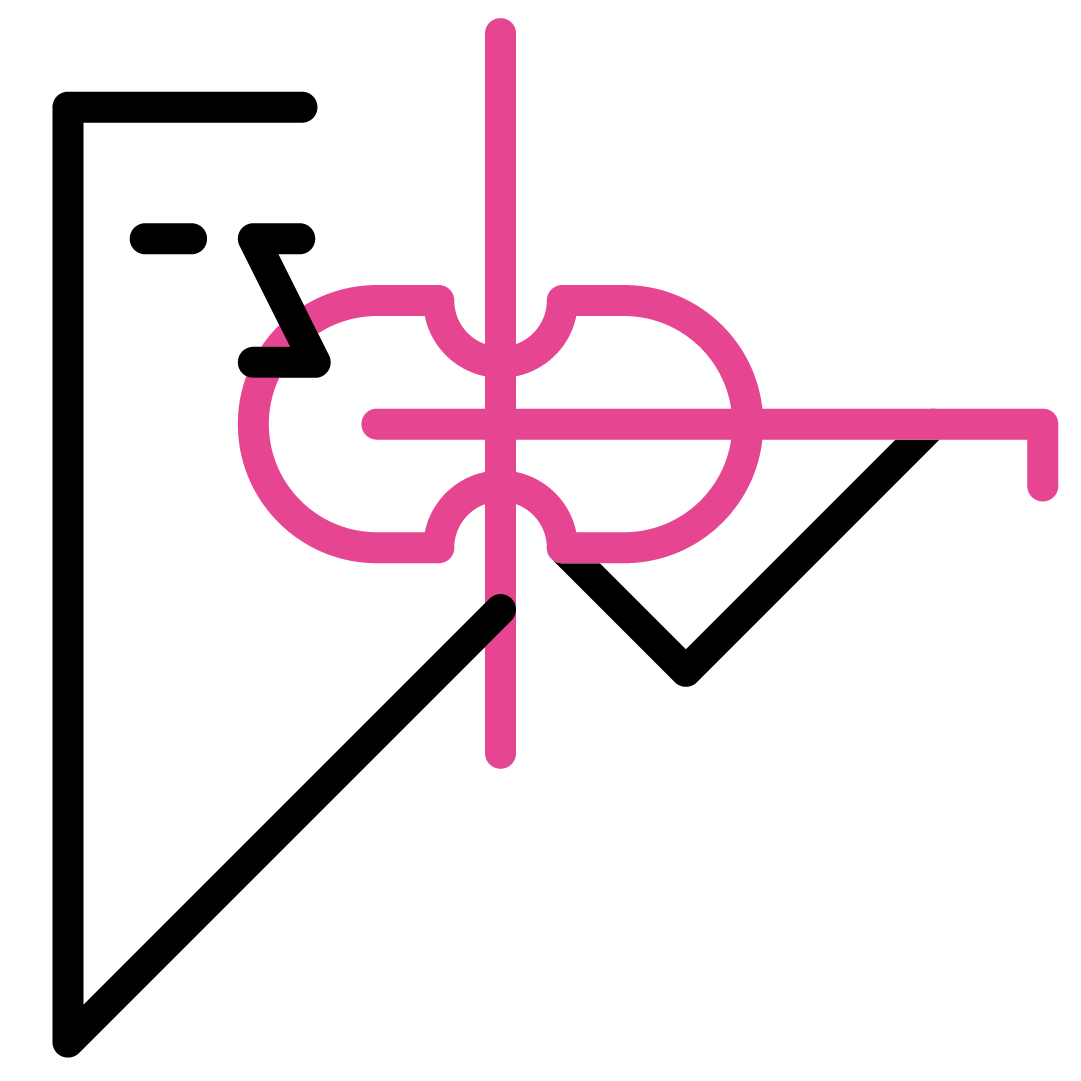
First Violin
Ofer, Erez
Neufeld, Andreas
Yoshikawa, Kosuke
Tast, Steffen
Kynast, Karin
Feltz, Anne
Yamada, Misa
Oleseiuk, Oleksandr
Sak, Muge
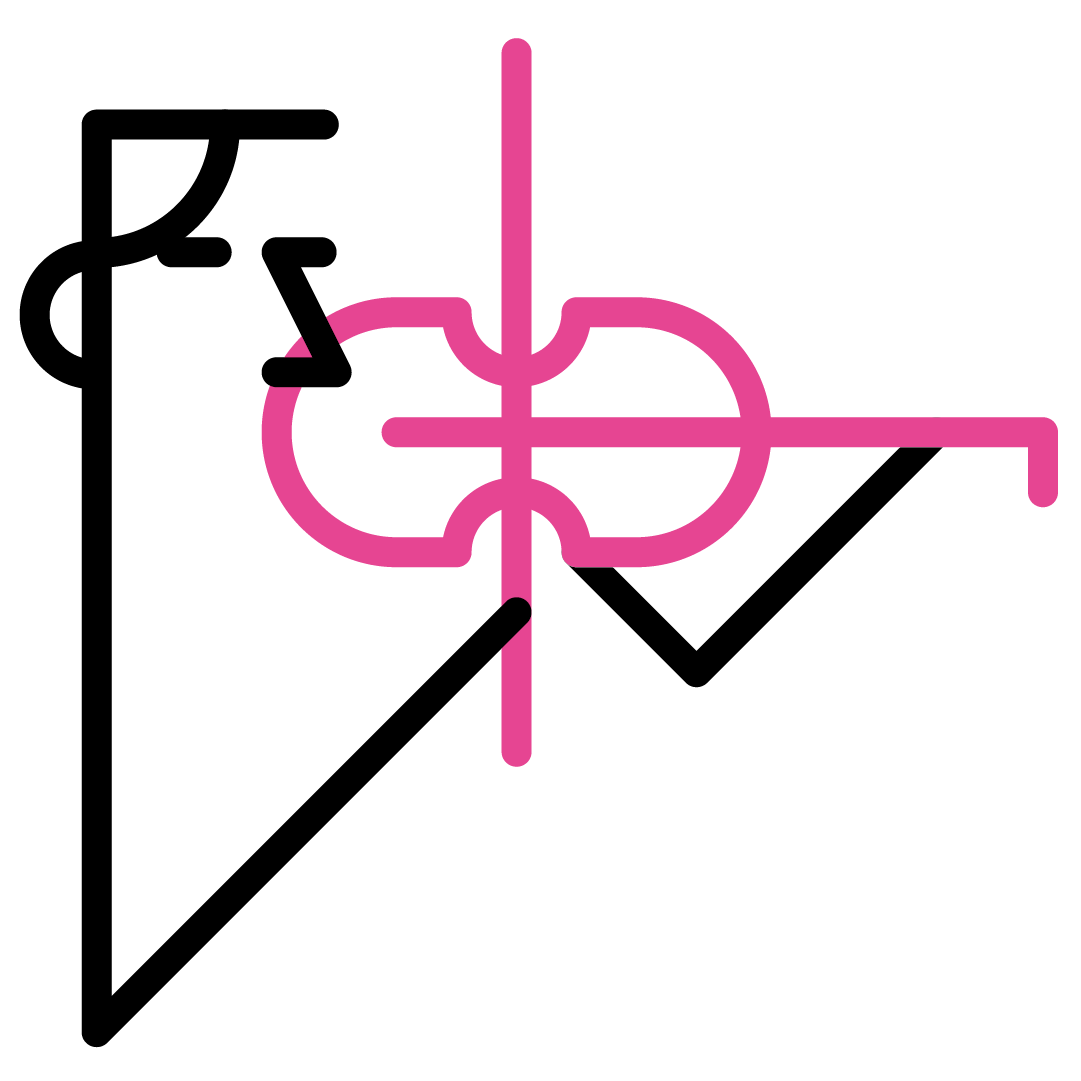
Second Violin
Kurochkin, Oleh
Simon, Maximilian
Seidel, Anne-Kathrin
Manyak, Juliane
Draganov, Brigitte
Hetzel de Fonseka, Neela
Palascino, Enrico
Sieradzki, Kinneret
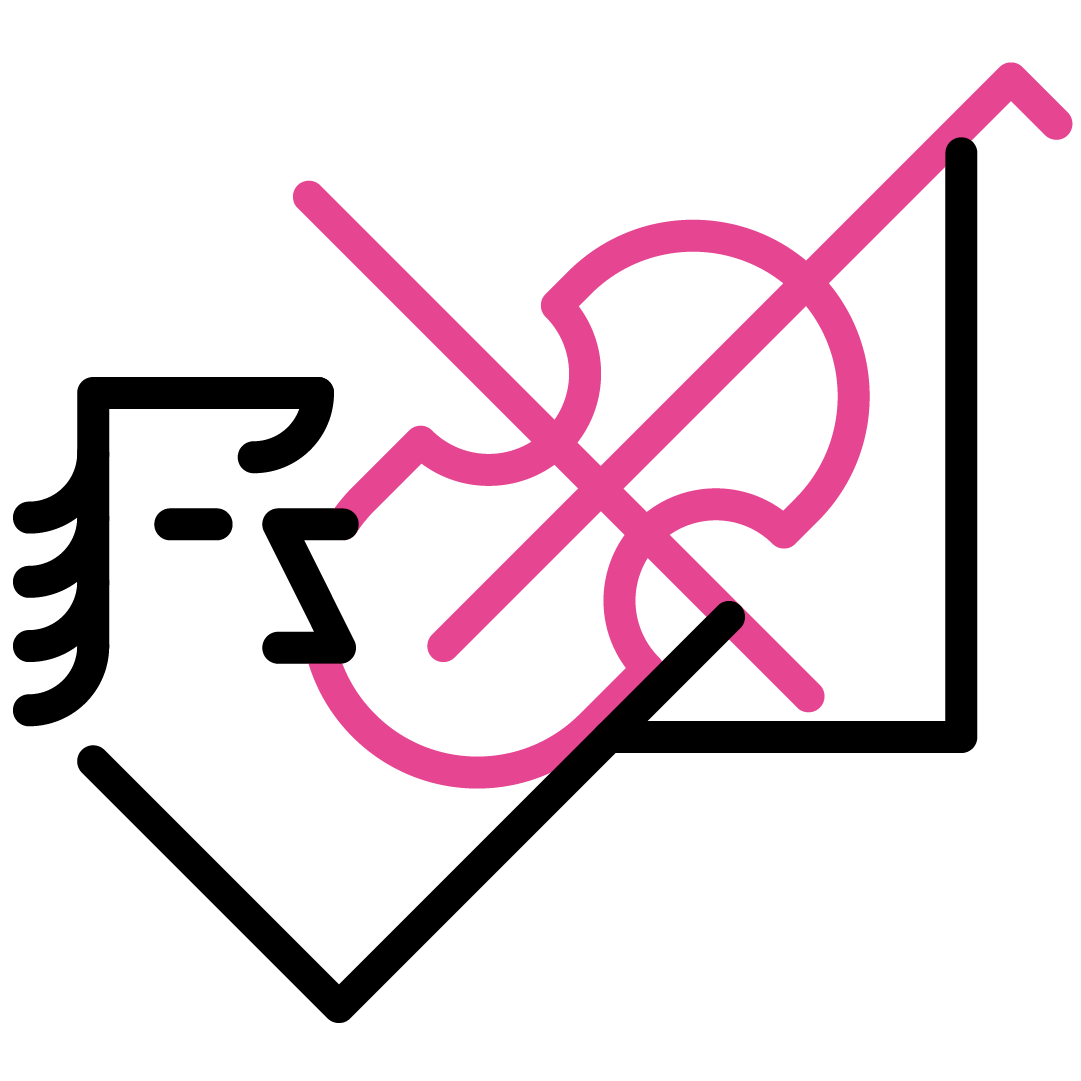
Viola
Adrion, Gernot
Silber, Christiane
Doubovikov, Alexey
Markowski, Emilia
Yoo, Hyelim
Yue, Yu
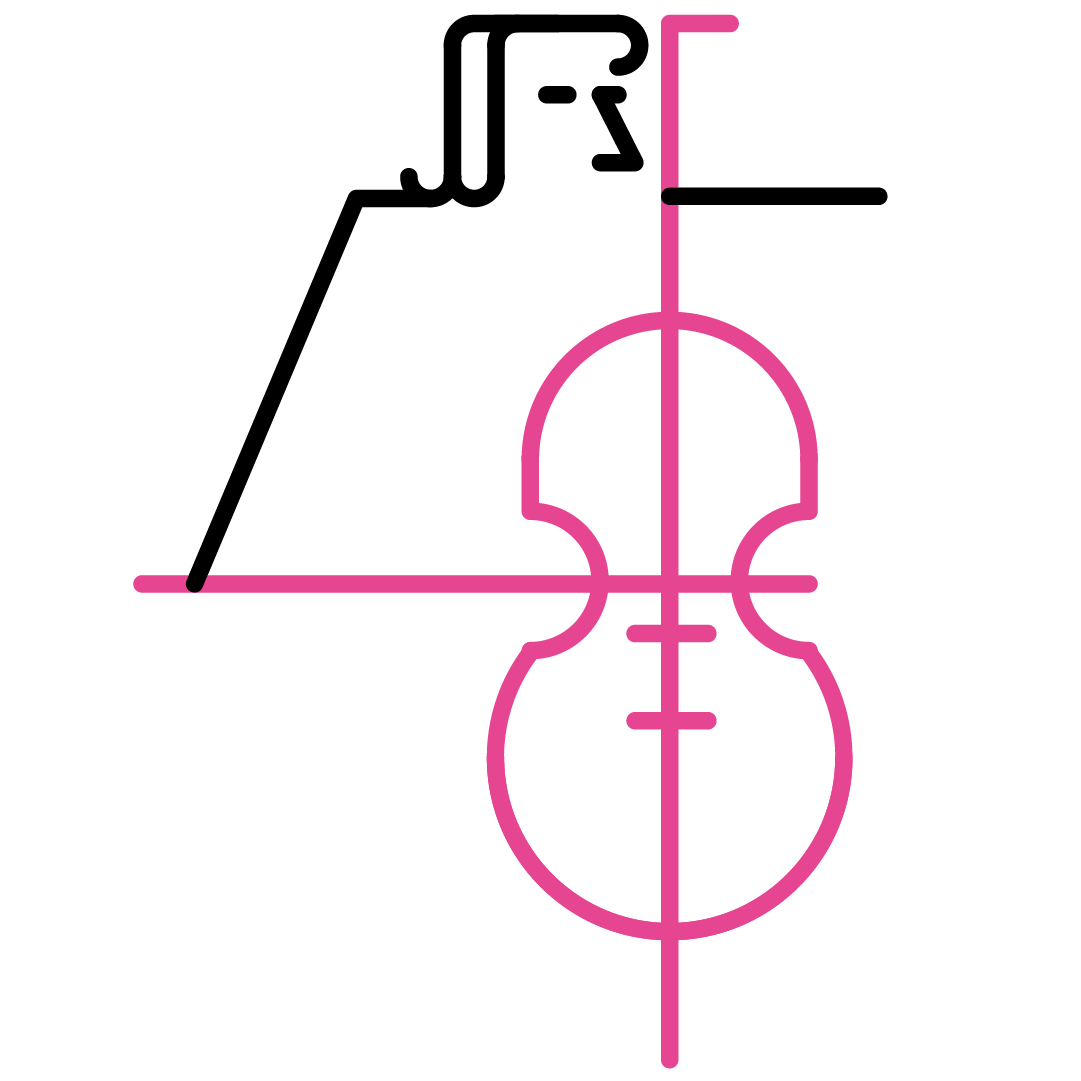
Violoncello
von Gutzeit, Konstanze
Weiche, Volkmar
Albrecht, Peter
Weigle, Andreas
Kipp, Andreas

Doublebass
Wagner, Marvin
Buschmann, Axel
Gazale, Nhassim
Zón, Jakub
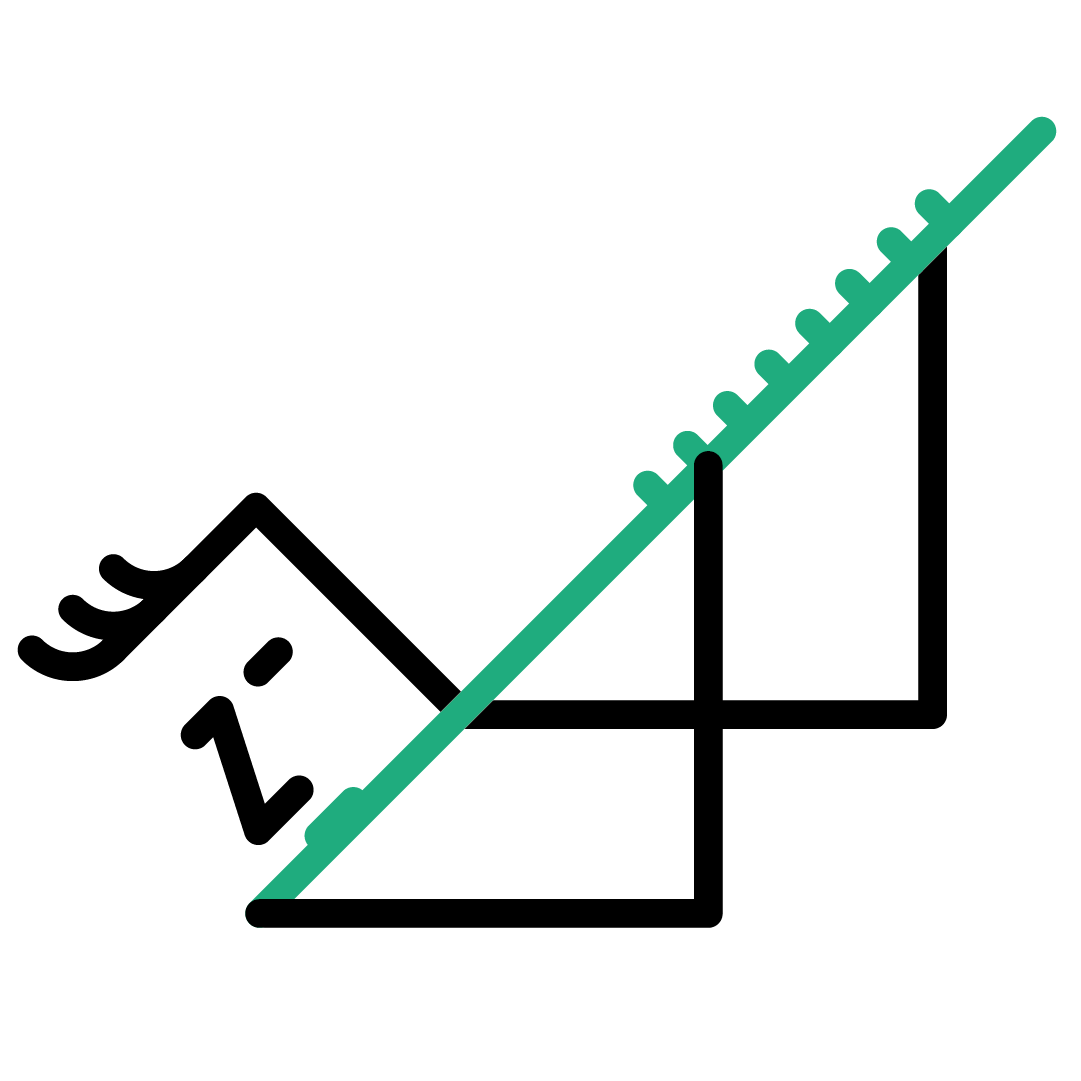
Flute
Schaaff, Ulf-Dieter
Döbler, Rudolf
Schreiter, Markus
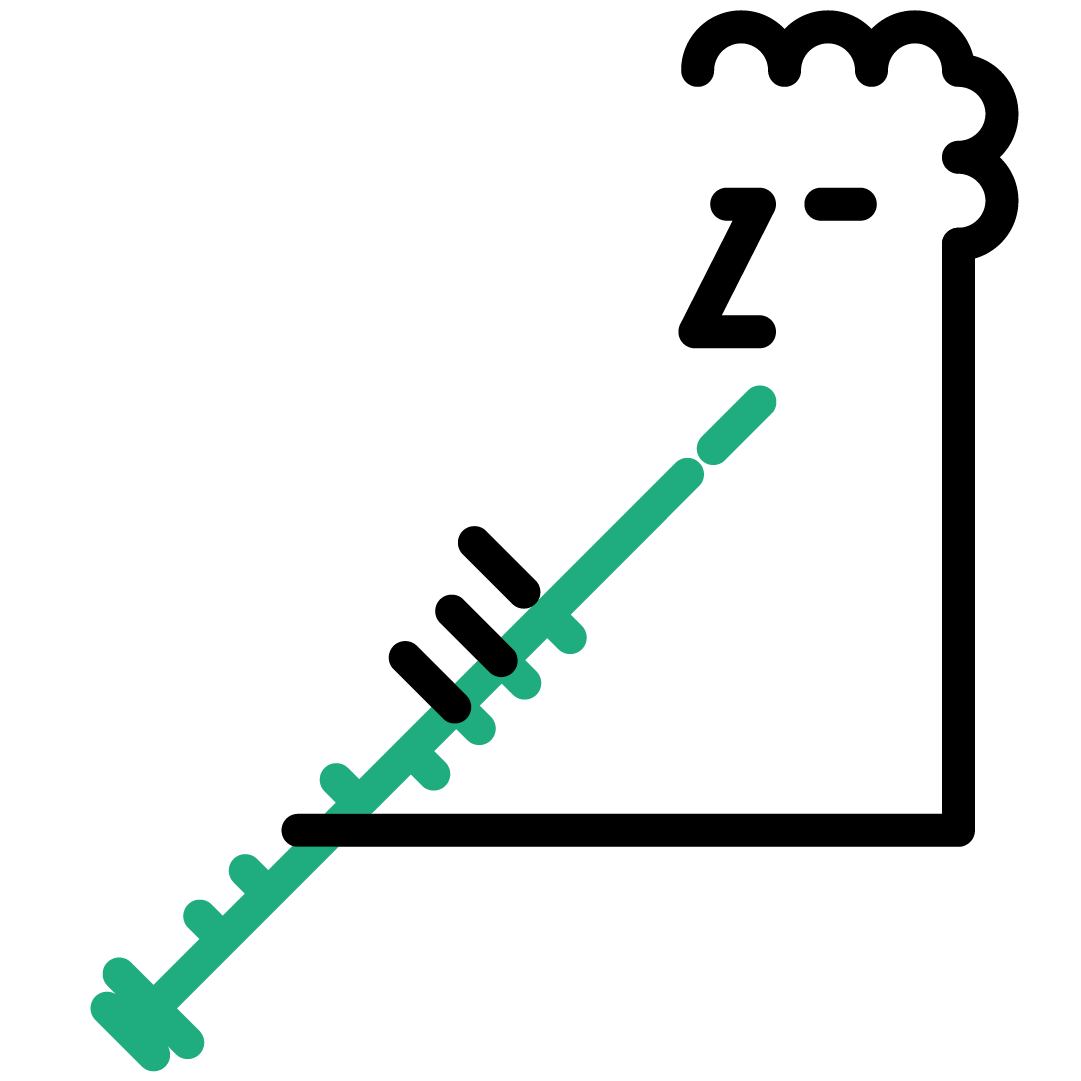
Oboe
Shore, Nigel
Vogler, Gudrun

Clarinet
Kern Michael
Korn, Christoph
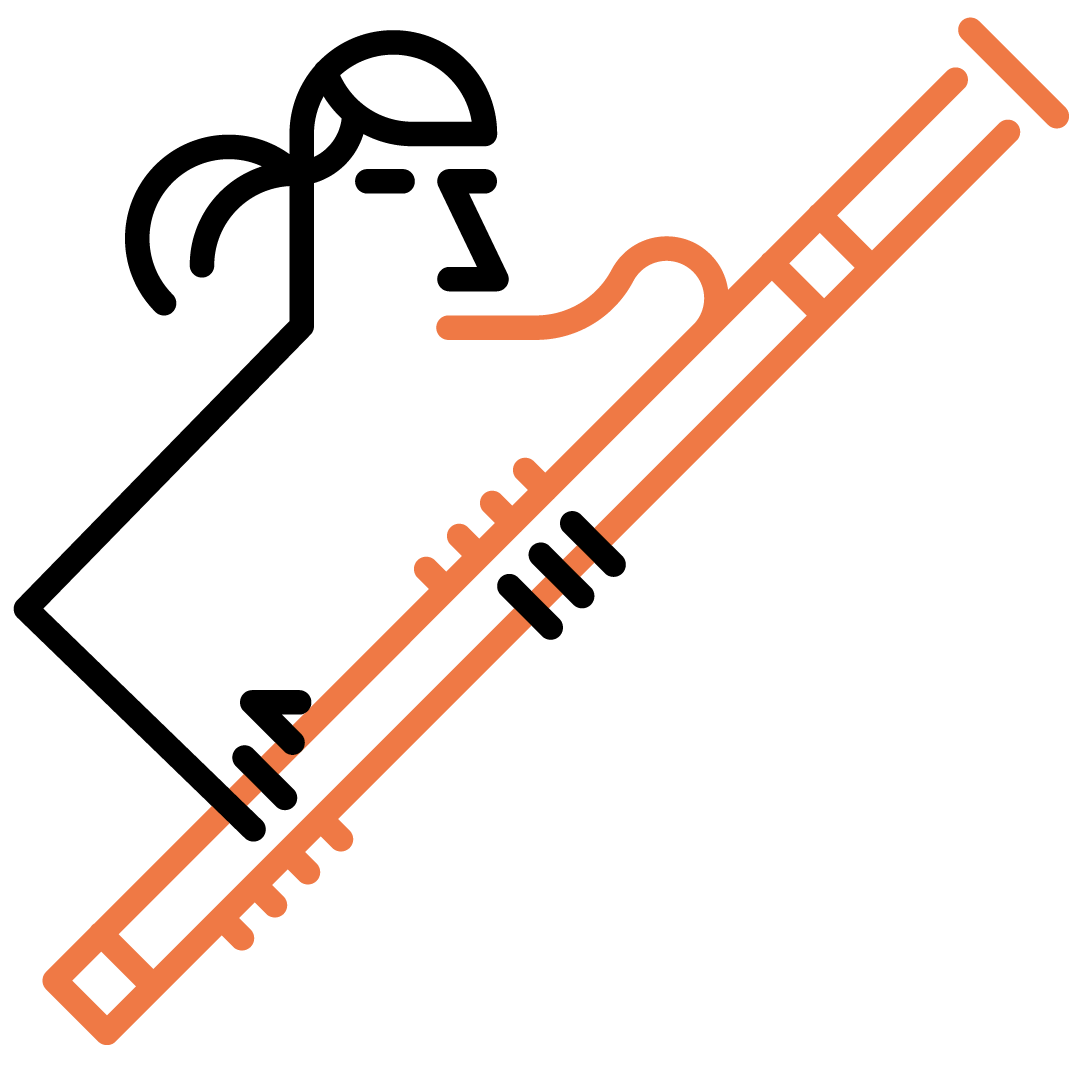
Bassoon
You, Sung Kwon
Voigt, Alexander
Königstedt, Clemens
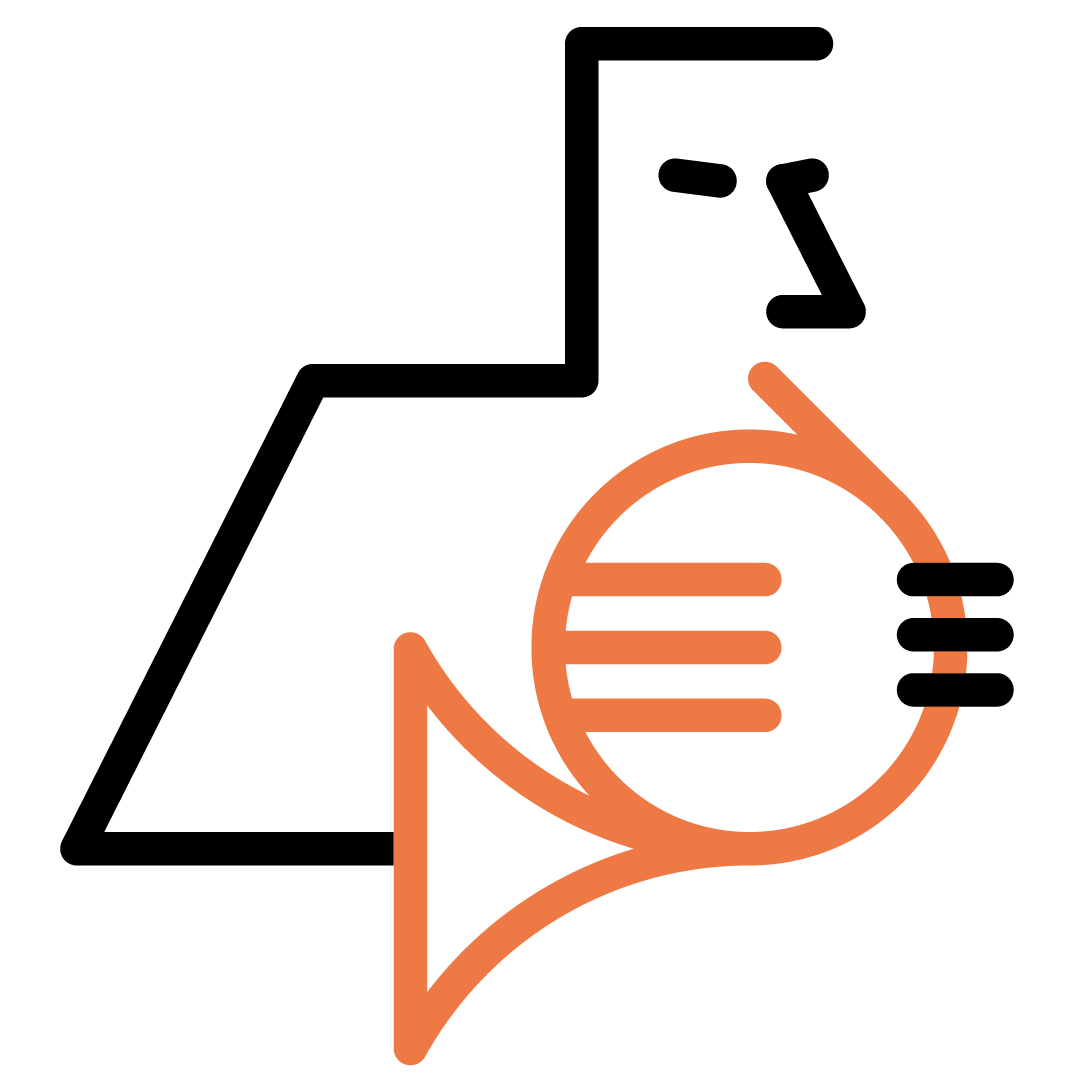
Horn
Kühner, Martin
Klinkhammer, Ingo
Stephan, Frank
Hetzel de Fonseka, Felix
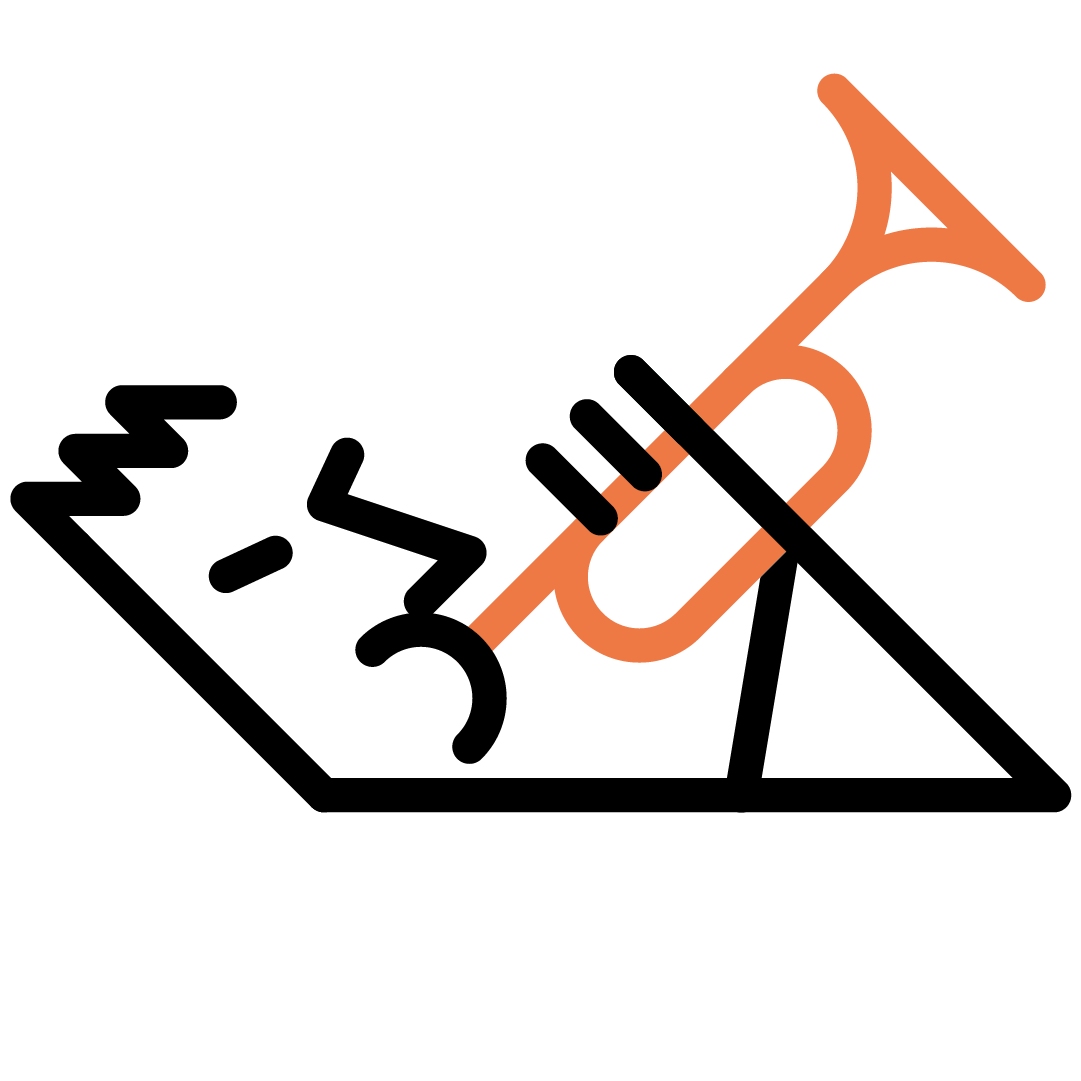
Trumpet
Ranch, Lars
Gruppe, Simone

Trombone
Manyak, Edgar
Hauer, Dominik

Harp
Edenwald, Maud

Percussion
Tackmann, Frank
Thiersch, Konstantin
Grahl, Christoph

Timpani
Wahlich, Arndt
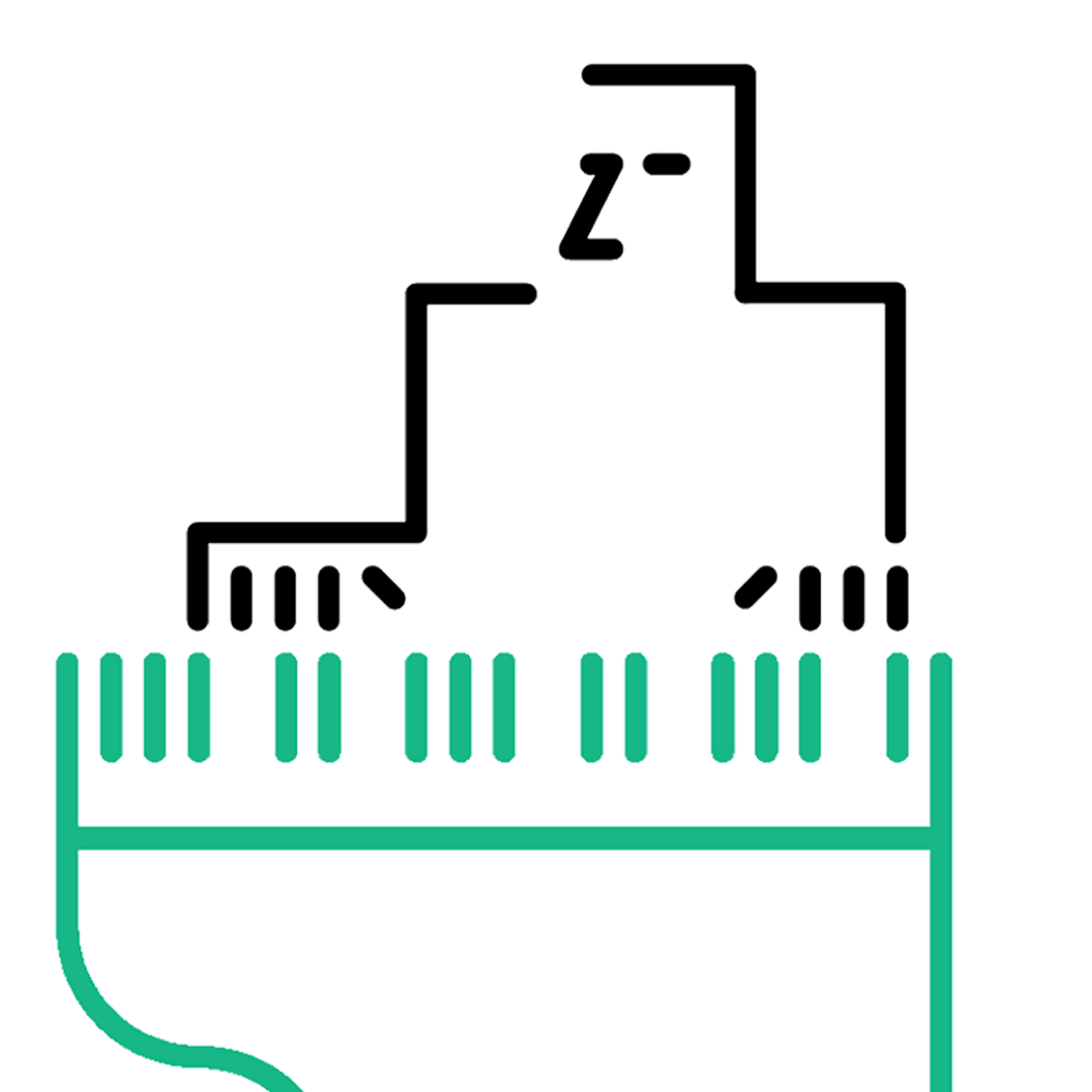
Celesta/Piano
Inagawa, Yuki
Cooperation
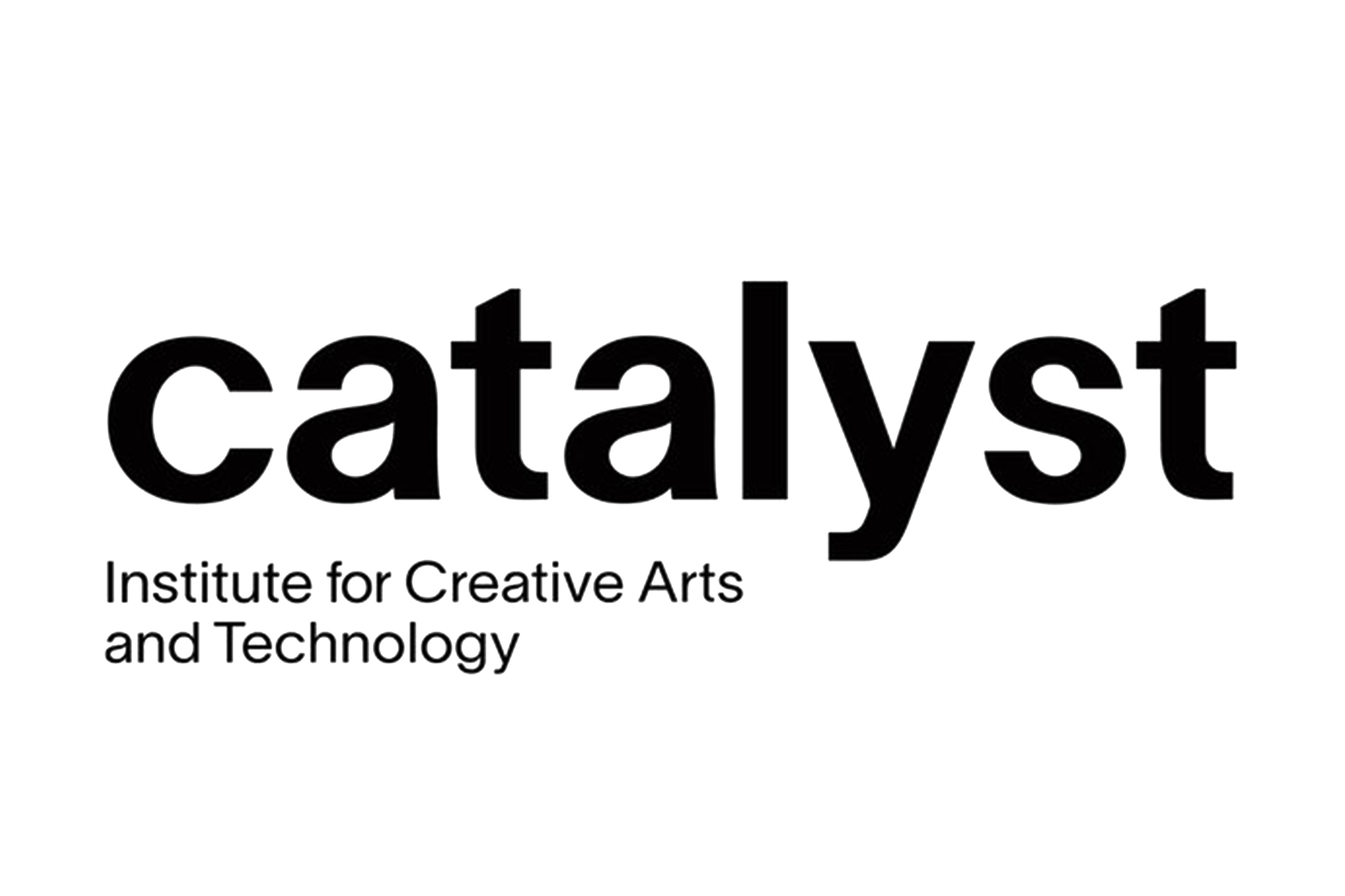
Image rights
Pictures Rehearsal Solists and Orchestra © Peter Meisel
Portrait Gustavo Llano © Peter Meisel
Portrait Victoria Randem © Caroline Olava
Portrait Mohamed Gamal © Peter Adamik
Portrait Richard Scott © Catalyst - Institute for Creative Arts and Technology
Portrait Ruth Reinhardt © Peter Meisel
Portrait Gustavo Llano © Peter Meisel